#give us the exposition writers!
Text
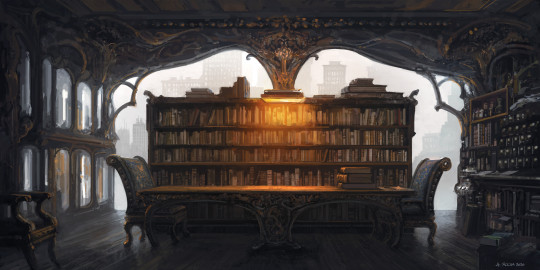
Homebrew Mechanic: Meaningful Research
Being careful about when you deliver information to your party is one of the most difficult challenges a dungeonmaster may face, a balancing act that we constantly have to tweak as it affects the pacing of our campaigns.
That said, unlike a novel or movie or videogame where the writers can carefully mete out exposition at just the right time, we dungeonmasters have to deal with the fact that at any time (though usually not without prompting) our players are going to want answers about what's ACTUALLY going on, and they're going to take steps to find out.
To that end I'm going to offer up a few solutions to a problem I've seen pop up time and time again, where the heroes have gone to all the trouble to get themselves into a great repository of knowledge and end up rolling what seems like endless knowledge checks to find out what they probably already know. This has been largely inspired by my own experience but may have been influenced by watching what felt like several episodes worth of the critical role gang hitting the books and getting nothing in return.
I've got a whole write up on loredumps, and the best way to dripfeed information to the party, but this post is specifically for the point where a party has gained access to a supposed repository of lore and are then left twiddling their thumbs while the dm decides how much of the metaplot they're going to parcel out.
When the party gets to the library you need to ask yourself: Is the information there to be found?
No, I don't want them to know yet: Welcome them into the library and then save everyone some time by saying that after a few days of searching it’s become obvious the answers they seek aren’t here. Most vitally, you then either need to give them a new lead on where the information might be found, or present the development of another plot thread (new or old) so they can jump on something else without losing momentum.
No, I want them to have to work for it: your players have suddenly given you a free “insert plothook here” opportunity. Send them in whichever direction you like, so long as they have to overcome great challenge to get there. This is technically just kicking the can down the road, but you can use that time to have important plot/character beats happen.
Yes, but I don’t want to give away the whole picture just yet: The great thing about libraries is that they’re full of books, which are written by people, who are famously bad at keeping their facts straight. Today we live in a world of objective or at least peer reviewed information but the facts in any texts your party are going to stumble across are going to be distorted by bias. This gives you the chance to give them the awnsers they want mixed in with a bunch of red herrings and misdirections. ( See the section below for ideas)
Yes, they just need to dig for it: This is the option to pick if you're willing to give your party information upfront while at the same time making it SEEM like they're overcoming the odds . Consider having an encounter, or using my minigame system to represent their efforts at looking for needles in the lithographic haystack. Failure at this system results in one of the previous two options ( mixed information, or the need to go elsewhere), where as success gets them the info dump they so clearly crave.
The Art of obscuring knowledge AKA Plato’s allegory of the cave, but in reverse
One of the handiest tools in learning to deliver the right information at the right time is a sort of “slow release exposition” where you wrap a fragment lore the party vitally needs to know in a coating of irrelevant information, which forces them to conjecture on possibilities and draw their own conclusions. Once they have two or more pieces on the same subject they can begin to compare and contrast, forming an understanding that is merely the shadow of the truth but strong enough to operate off of.
As someone who majored in history let me share some of my favourite ways I’ve had to dig for information, in the hopes that you’ll be able to use it to function your players.
A highly personal record in the relevant information is interpreted through a personal lens to the point where they can only see the information in question
Important information cameos in the background of an unrelated historical account
The information can only be inferred from dry as hell accounts or census information. Cross reference with accounts of major historical events to get a better picture, but everything we need to know has been flattened into datapoints useful to the bureaucracy and needs to be re-extrapolated.
The original work was lost, and we only have this work alluding to it. Bonus points if the existent work is notably parodying the original, or is an attempt to discredit it.
Part of a larger chain of correspondence, referring to something the writers both experienced first hand and so had no reason to describe in detail.
The storage medium (scroll, tablet, arcane data crystal) is damaged in some way, leading to only bits of information being known.
Original witnesses Didn’t have the words to describe the thing or events in question and so used references from their own environment and culture. Alternatively, they had specific words but those have been bastardized by rough translations.
Tremendously based towards a historical figure/ideology/religion to the point that all facts in the piece are questionable. Bonus points if its part of a treatise on an observably untrue fact IE the flatness of earth
#homebrew mechanic#d&d mechanics#research#tableskills#tabletop inspiration#dm tip#dm advice#exposition
447 notes
·
View notes
Text
Want to worldbuild like a pro??
(📖 Master tips and everything I know📖)
Hello writers! You don't know how to worldbuild? Don't know where to start explaining the world you have created? Don't worry, you are in the right place! I have been there myself, and after many research (and even more trial and error) I have put together a list of the best worldbuilding tips I have encountered, and also created some of my own. (I know the first one is kind of overheard, but trust me).
Don't start right away with worldbuilding. A long paragraph about how your world works and its history might overwhelm new readers. A lot of other writers suggest waiting and learning about the world at the same time the protagonist does, or if that doesn't work for your story, dropping bits of information while the story moves forward. However, if you want to give a sense of how your world works from the start...
Exposition through action. This is my favorite method, and it helps a lot if you don't want to pause your story to info dump about the world you have created. Instead, this method relies on explaining the world and its dynamics while you continue with the narrative, briefly. For example: "As always, you couldn't see any trees in the meadow. The king had ordered years ago to cut each one of them because of a prophecy that foretold that the last dragon egg would lay in an oak."
Use expressions that reference normality or routines. In the last point, we used "as always", but there are tons of expressions you could use in your writing. This helps the reader understand what is the norm in this new world and what things are common, to later detect something that is not within that norm (or sometimes just to understand the world and its traditions better).
Use flashbacks when necessary. If you need to explain a very specific or detailed topic, I suggest using a flashback scene, that will help the reader understand with the narration and dialogue, instead of just explaining it to them. It makes for a more dynamic learning experience. But, at the end...
Do whatever will intrigue you. Some readers even like info dumps, and there is not one correct way to show your world. If it would make you curious, go and do it, wether people say it's correct or not. There are a lot of successful books that randomly stop to explain something about the world, and there is nothing wrong with that if you like it.
Hope you find this list useful, and as always happy writing :)
Also, if you are interested in tips or more examples of a specific topic, you can always leave a question in my ask. I'd be glad to answer it!!
Other tips for writers: previous
#writeblr#writing#writer#writers#writers on tumblr#writerscommunity#writers of tumblr#creative writing#current wip#world building#worldbuilding#tips for writers#tips#writing tips
168 notes
·
View notes
Text
The Writer's Guide to Mastering Dialogue
You've heard it a thousand times—show, don't tell. One of the most effective ways to do this in your writing is through dialogue. Dialogue helps bring your story and characters to life, propels the action forward, and engages readers. But crafting realistic, compelling dialogue is an art form that takes practice. Don't worry, Rin's got you covered. In this guide, you'll discover techniques for writing dialogue that sparkles. You'll learn how to make conversations sound natural, differentiate character voices, convey subtext and emotion, and use dialog for exposition. By the end, you'll be writing dialogue with confidence and watching your characters come to life on the page. So grab a cup of coffee or mocha (my favorite), settle in, and let's chat about the art of conversation.
Why Dialogue Matters in Your Novel
Dialogue is one of the most powerful tools in a writer's arsenal. It brings your story to life and creates realistic characters that readers can connect with. If you want to master the art of fiction writing, you need to know how to write compelling dialogue.
Dialogue reveals character and moves the story forward. Through dialogue, readers get a sense of your characters' personalities, backgrounds, and motivations. It's a chance to show, not tell, what your characters are like. Dialogue also propels the action and builds suspense, as characters chat about the events unfolding in the story.
There are a few keys to crafting believable and engaging dialog:
•Make it sound natural. Listen to real conversations for inspiration. Dialogue should flow and feel spontaneous, not stiff or forced. Use contractions, interruptions, and imperfect speech.
•Give each character a unique voice. The way people speak depends a lot on their background, education level, profession, and personality. Capture the subtleties of different speaking styles to bring your characters to life.
•Use dialogue tags and actions. Adding "he said/she said" and descriptions of characters' actions and expressions during conversations helps readers keep track of who's talking and provides context. Use a variety of tags like asked, exclaimed, and murmured.
•Move the conversation along. Keep dialog concise and avoid unnecessary filler words. Get to the point so readers stay interested in what's being said. Dialogue should always move the story forward.
•Show tension and conflict. Interesting conversations often involve disagreement, sarcasm, arguing, or questioning. Create tension through dialogue to keep readers engaged.
With the right techniques, you can make dialogue a pivotal part of your story. So listen, observe, and practice the art of great conversation - your readers will thank you!
Developing Distinctive Character Voices Through Dialogue
To develop distinctive voices for your characters, focus on how they speak. Dialogue is one of the best ways to bring your characters to life and propel your story forward.
Pay attention to your characters’ backgrounds, experiences, education levels, and attitudes. All of these factors influence how people talk in real life, so apply that to your characters. Maybe your wise-cracking character uses a lot of humor and sarcasm, while your shy character speaks hesitantly in short sentences.
Listen for speech patterns, accents, and catchphrases in real conversations and note them for inspiration. Capture the rhythm and flow of natural dialogue.
Give each character their own vocabulary based on their interests, jobs, and lifestyles. The tech geek’s dialogue will differ from the history professor’s.
Establish characters’ voices from their first lines of dialog. Look for a memorable way for them to express themselves. The impatient character may frequently use phrases like “spit it out already!” while the pessimist’s go-to is “what could possibly go wrong?”
Use dialog to reveal aspects of characters’ personalities and backgrounds without telling readers directly. Show, don’t tell. For example, a character who says “please” and “thank you” in every sentence likely has a polite and courteous nature.
Read dialogue aloud to make sure it sounds natural. Get friends or family members to read different characters’ lines. If anything sounds off, rework it.
With practice, crafting distinct voices for your characters through dialog will become second nature. Your characters' voices, conveyed through the words they say and the way they say them, will make your story come alive for readers. So take the time to get to know your characters by how they speak. Their voices are worth developing.
Using Dialogue to Reveal Character
Reveal Character Through Dialogue
Dialog is one of the best ways to reveal details about your characters and show their personalities. Carefully crafted conversations can expose a character's background, values, education level, and more without telling the reader outright.
As your characters talk, think about what kinds of words and phrases they would use based on who they are. An older British gentleman will speak very differently than a teenage skateboarder from California. Listen to people with similar backgrounds and life experiences to your characters for inspiration.
Also consider:
The rhythm and cadence of their speech. Do they speak quickly or slowly? Formally or casually?
Their vocabulary. Does your character use complex words and jargon or simpler language?
Grammar and pronunciation. Does your character follow the rules or have their own way of speaking?
For example, here's a short exchange that shows the contrast between two characters:
Jenny (teenage skateboarder): "Hey, you gonna drop in on the half pipe today or just pose by the ramp again?"
Mr. Edwards (older British gentleman): "I'm afraid vert skating is a young man's game, my dear. I'm quite content to watch you whippersnappers from the sidelines."
Even from this brief conversation, you get a sense of each character's age, background, and attitude without the author explicitly telling you. Mastering the art of subtext in dialog will make your stories come alive and allow readers to discover the depth in your characters for themselves.
Driving the Plot Forward With Meaningful Dialogue
To keep your readers engaged, your dialog needs to propel the story forward. Meaningful exchanges between characters should reveal information, create conflict, and raise the stakes.
Share Relevant Details
Use dialogue as an opportunity to share important details about the characters, their relationships, backstories, and the world they inhabit. For example:
“Did you hear they’re raising tuition again next semester?” Jenny asked.
“Ugh, not again,” Mark groaned. “How are we supposed to afford another five percent?”
This exchange informs the reader that Jenny and Mark are college students struggling with the costs. Look for natural ways to slip in context through dialog without sounding forced.
Create Conflict
Interesting stories thrive on tension, disagreement, and clashing perspectives. Have your characters bicker, argue, and challenge each other. For example:
“You never listen to me!” Alice shouted. “You always have to be right.”
“I’m not trying to be right,” Brian retorted. “I’m trying to protect you, but you’re too stubborn to see that.”
The quarrel fuels the underlying conflict in their relationship and keeps readers wondering how they’ll resolve their differences.
Raise the Stakes
Use meaningful dialog at key moments to increase the urgency, suspense or importance of what’s happening in the story. For example:
“The test results came back—it’s not good news,” the doctor said grimly.
Not only does this distressing announcement raise the stakes for the character’s health issue but it also creates a cliffhanger, leaving the reader wondering about the diagnosis and anxiously awaiting more details.
Meaningful dialog is essential for crafting an engaging story. Use it to inform readers, create conflict between characters, raise the stakes, and propel the plot toward a climax. With practice, writing authentic dialog will become second nature.
Creating Tension and Conflict Through Dialogue
To keep readers engaged, effective dialog should create tension and conflict between characters. As in real life, the conversations in your story should have stakes and push characters outside their comfort zone.
Show underlying tensions
Have characters disagree and argue to reveal underlying tensions. For example:
“You never listen to me. It’s always about what you want.”
“That’s not fair and you know it. I’ve sacrificed a lot for this family.”
This type of emotionally-charged exchange shows the couple has deeper issues to work through regarding resentment and lack of appreciation.
Create awkward situations
Put characters in awkward situations through dialog to ramp up the tension. For example:
“How’s the job search going?”
“Um, still looking. The market’s tough right now.”
“Really? I heard your company is hiring. I put in a good word for you with some people I know there.”
“Oh. Thanks, I guess.”
The second character is now in the difficult position of admitting the job search isn’t going well and they don’t actually have any leads. This cringeworthy moment translates the tension to readers.
Issue challenges and ultimatums
Have characters challenge each other by issuing warnings, demands or ultimatums, for example:
“If you walk out that door, we’re through. I mean it this time.”
“Don’t threaten me. You need me more than I need you.”
Throwing down the gauntlet in this way forces characters to back up their words with actions, which heightens the tension and conflict. Readers will keep reading to see who comes out on top!
Using dialog that highlights tension, creates awkwardness, and issues challenges is a great way to craft page-turning scenes that keep readers on the edge of their seats. Mastering the art of writing gripping dialogue is key to writing a story that resonates.
Avoiding Common Dialogue Mistakes
One of the biggest mistakes new writers make is crafting unrealistic or clichéd dialog. Your characters’ conversations should flow naturally and sound believable to readers. Avoid these common dialog doners:
Repeating Characters' Names
In real life, we rarely use someone's name in every sentence when talking to them. Only use a character's name when beginning a new exchange or for emphasis. Repeating names too often makes the dialog sound unnatural.
Overusing Exposition
Don't have characters explain things solely for the reader's benefit. Only include exposition that makes sense for the characters to actually say to each other. Find other creative ways to convey important backstory or worldbuilding details.
Forgetting Emotion
Dialog without emotional cues like facial expressions and body language can seem flat. Use emotive verbs and adverbs to show how the lines are delivered. For example, "she exclaimed" or "he muttered angrily." Also describe characters' physical reactions and behaviors to further bring the scene to life for readers.
Talking in Complete Sentences
Real conversations are often choppy, filled with interruptions, tangents, and imperfect grammar. Vary your sentence structure and length. Use fragments, run-ons, and breaks when appropriate. Not all dialog needs to be in perfectly punctuated full sentences.
Clichéd Phrases
Certain overused phrases like "it's quiet...too quiet" or "we've got company!" indicate lazy or clichéd writing. Come up with original ways for your characters to express themselves that fit with their unique personalities and situation. Avoid reusing trite or familiar sayings.
With practice, writing natural-sounding dialog will become second nature. Pay close attention to how real people speak, and aim to replicate the flow and cadence in your writing. Follow these tips, and your characters' conversations will truly come alive on the page!
Formatting Dialogue Correctly
When writing dialog, formatting it correctly is key to making it clear and compelling for readers. Here are some tips for formatting your dialogue effectively:
Use quotation marks
Place all dialogue between double quotation marks (“”). This indicates the character is speaking. For example:
“Hello,” she said. “How are you today?”
Start a new paragraph for each new speaker
Having each character's dialog on its own line makes it easy to follow who's talking. For example:
“Did you finish your homework?” Mom asked.
“I'm almost done,” I replied. “Just have some math problems left.”
Describe the speech
Use speech tags like "said", "asked", "replied" to indicate how the dialog was delivered. For example:
“I don't want to go to bed yet,” the little girl whined.
Punctuate properly
Place punctuation such as periods, commas, question marks, etc. within the quotation marks. For example:
“Where are you going?” she asked.
I said, “To the store. Do you need anything?”
Use beats
"Beats" are actions or descriptions that replace the "he/she said" tags. They make dialog more engaging and help set the scene. For example:
"I'm tired." John yawned and rubbed his eyes.
"Then go to sleep." Mary folded her arms, annoyance in her tone.
Avoid over-tagging
Don't tag every single line of dialog with "said" or the character's name. Let context and formatting do some of the work for you. For example:
"Did you talk to Mom today?"
"Yeah, she called this morning."
"What did she say?"
"That she'd be home in time for dinner."
Following these guidelines will make your dialogue clear, compelling, and help bring your story to life. Readers will appreciate dialog that flows naturally and is easy to follow.
Using Dialogue Tags Effectively
To write effective dialog, you need to master the use of dialog tags. Dialog tags are the parts of speech that indicate who is speaking, such as “he said” or “she asked”. When used properly, dialog tags can enhance your story without distracting the reader.
Choose tags that match the tone
Pick dialog tags that match the emotional tone of the dialog. For example, use “he whispered” for hushed speech or “she shouted” for loud, angry speech. Avoid reusing the same generic tags like “he said/she said” repeatedly, but don't get too creative either. Stick with simple verbs that imply the manner of speech.
Use action tags
Action tags describe a character's physical actions or expressions while speaking. For example, "“I’m not going,” he shook his head.” or ““What a day!” She ran her hands through her hair and sighed.” Action tags bring dialog to life and help the reader visualize the scene. They also give you an opportunity to reveal character details.
Drop the tag when implied
Once two characters establish a back-and-forth dialog, you can often drop the dialog tags altogether. As long as it's clear who is speaking, the tags become unnecessary. For example:
“Did you finish your homework?” Mom asked.
“Most of it,” I said.
“Most of it? What didn’t you finish?”
“Just some math problems. I’ll do them after dinner.”
“You’d better. I’m checking it tonight.”
After the first two lines, the reader understands that Mom and I are the speakers, so the remaining dialog does not need tags. Dropping implied tags creates a snappier feel and prevents repetitive, unnecessary tags.
Using a mix of well-placed dialog tags, action tags, and implied dialog, you can craft seamless conversations between characters that flow naturally, without distraction. Keep practicing and listening to real-world conversations for inspiration. With time, writing compelling dialog will become second nature.
FAQs About Writing Dialogue
When writing dialogue, questions inevitably come up. Here are some of the most frequently asked questions about crafting realistic and compelling dialogue.
Do I use quotation marks or italics?
In fiction writing, use quotation marks (“”) to denote direct speech. Only use italics for thoughts or emphasis. Quotation marks allow the reader to easily distinguish between dialog and narration.
How do I avoid “he said, she said”?
To prevent repetitive “he said/she said” tags, use action tags that describe the speaker's actions or expressions. For example:
“We should get out of here,” he whispered, glancing around nervously.
She slammed her fist on the table. “Why didn’t you tell me sooner?”
You can also drop the dialog tag altogether if the speaker is clearly identified through context or action. The dialog itself and how you structure the conversation can imply the tone.
How do I make dialogue sound natural?
Pay attention to the cadence and rhythm of actual conversations. Dialog should:
Sound like natural speech, not formal writing. Contractions are okay!
Have an easy back-and-forth flow. Keep responses concise and avoid monologs.
Capture unique speech patterns based on a character's background and personality.
Include interruptions, changes in subject, and imperfect grammar. We don't speak perfectly in real life!
What are the rules for punctuating dialog?
Use a comma between the dialogue tag and the dialog: “Hello,” she said.
If the dialog tag comes before the dialog, end it with a comma: She said, “Hello.”
If the dialogue is interrupted by a dialog tag, use commas to separate it from the tag: “Hello,” she said, “how are you?”
Use a period to end a sentence of dialog: “Hello.”
Use a question mark for a question: “How are you?” she asked.
Use an exclamation point for excitement or emphasis: “Wow!” he exclaimed.
Start a new paragraph each time the speaker changes.
Following these tips will have you crafting dialog like a pro in no time. Let me know if you have any other questions!
Additional Tips For Writing Dialogue
Keep it concise
When writing dialog, less is more. Keep exchanges brief and avoid long speeches. Readers will get bored quickly if characters drone on and on. Focus on using just enough dialog to convey key information or advance the scene.
Use natural language
Write dialog like people really speak. Use casual language, contractions, slang, and imperfect grammar. Drop words like “um”, “like”, and “you know” into conversations to make them sound authentic. Read your dialog aloud to ensure it flows naturally. If it sounds stilted or awkward when spoken, it will come across that way to readers as well.
Share emotions
Dialog should reveal characters’ emotions and attitudes. Have characters express feelings like excitement, frustration, fear or affection through their word choice, tone, and body language. For example, a character who sighs, rolls their eyes or speaks in a sarcastic tone conveys a very different emotion than one who smiles, makes eye contact and speaks enthusiastically.
Keep it relevant
All dialog should serve a purpose, whether to reveal something about a character, advance the plot or set a mood. Avoid “empty” exchanges that fill space but add no value. If a conversation seems pointless or dull, cut or rewrite it.
Use action and description
Don't rely solely on dialog to carry a scene. Include action and descriptions to give readers a more complete picture. For example:
"Where were you?" Anna asked.
Mark sighed and ran his fingers through his hair. "I got stuck at work. I'm really sorry."
The description of Mark's actions and appearance helps the reader understand his emotional state and see the full context of the conversation.
Leave room for interpretation
Don't have characters over-explain or outright state their feelings and motivations. Leave some details to the reader's imagination. For example, instead of:
"I'm angry that you lied to me," Amy said angrily.
Try:
Amy folded her arms and glared at him. "You lied to me."
The emotional context is clear without having to explicitly state Amy's anger. Subtlety and nuance in dialog make for a more engaging read.
Conclusion
So there you have it, the keys to mastering dialogue/dialog in your writing. I hope my extensive research was enough information for you all. Focus on listening to the voices around you, develop unique voices for your characters, keep your exchanges tight and impactful. Remember, dialog should always move the story forward, not just fill space on the page. With practice, writing compelling dialog can become second nature. Now go eavesdrop on conversations, study your favorite books and shows, and get to work crafting those conversations. Your characters and readers will thank you for it. Keep at it and before you know it, you'll be writing dialog with the best of them!
(Keep in mind I used both dialog and dialogue just in case there's a few who get annoyed with that.)
Join my discord server if you'd like to talk to other writers, authors, and anyone who loves writing like you. Receive updates on exclusive content! Don't miss out.
Want me to turn Your character into a Artbreeder portrait? Fill this form out! ↓
Copyright © 2023 by Ren T.
TheWriteAdviceForWriters 2023
#writers#creative writing#writing#writing community#writers of tumblr#creative writers#writing inspiration#writeblr#writerblr#writing tips#writblr#writing prompt#story prompt#writing ideas#writing prompts#creative writing prompts#creative writing prompt#story idea#story ideas#writing idea#just write it#writers block#writer things#writers life#just writer things#let's write#writing resources#thewriteadviceforwriters#how to write#on writing
722 notes
·
View notes
Text
I was writing a meta post about the final fifteen and honestly it got so long an unwieldy that I gave up and just decided to live in denial land for a bit. But there is one piece of the puzzle I want to put out there, and that's how the flashbacks are edited, or one in particular.
I've seen a couple of great posts about how the flashback minisodes are edited in season two to be from Aziraphale's POV and not the Objective View, and if I was a better meta writer I'd have links for you, but I'm not, sorry. I've also seen a few posts discussing whether Aziraphale is a reliable narrator. That is definitely something we ought to consider when dealing with this sort of POV storytelling, but not entirely relevant to my post, but worth reading about if you have the time.
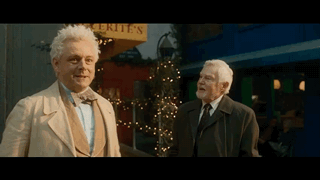
What I want to discuss is how the Metatron conversation is edited. We see Aziraphale go outside with the Metatron, this is the usual objective viewpoint. It then cuts to the scene inside the shop. We don't see the Metatron conversation again until Aziraphale is talking to Crowley. The way it is edited makes it very clear that this is not just a flashback but also Aziraphale recounting the tale. The use of "He said-" cut to scene, and "I said" cut to scene makes it as clear as the editor possibly can make it. It is a technique often used in editing to reduce exposition monologuing. Whether this is an accurate depiction of the Metatron conversation, we don't know but not actually relevant to my point (though worth thinking about).
What I want to point out is that Aziraphale chose to give Crowley four important pieces of information.
I don't want to go back to heaven.
There are enormous projects afoot. (consider that they have already discussed the possibility of a second Armageddon, though only Crowley knows about the Second Coming.)
They know about the Arrangement.
We could go together as angels.
He says all this in such a way that suggests he's fully drank the cool aid, but if we review the information without the dramatics it sounds more like a warning.
The use of double signalling ("it'll be like the old times, but even nicer" whilst shaking his head no) which occurs throughout the scene, this post and this video got me thinking about how deceptive Aziraphale is being. But he's not trying to deceive Crowley. He is trying to pass on the above information, hinting that he has a plan, whilst putting on a show for whoever is watching. He assumes Crowley is on the same page, and then it all falls apart when it becomes apparent that Crowley is really not. This is when he changes tack, and begins to panic.

He's left with the horrible task of trying to respond to Crowley's declaration positively, whilst not breaking the illusion. Which is why we get lines like "We can be together... as angels."
He also obviously sees them as a unit already (our car, our shop) and so it may not have he occurred to him that Crowley wouldn't just trust him and follow him into heaven. It's insensitive yes, but also not out of character for Aziraphale. I think this is the real kicker here, Aziraphale feels rejected because Crowley doesn't trust him enough to follow, and Crowley feels rejected because he doesn't feel good enough. Yet they are both clearly saying they want to be together.
I think the final few moments with Aziraphale and the Metatron is really what sells this idea to me. He is left undecided. He has the choice, abort mission and follow Crowley, or go ahead alone. He's devastated and you can see him wavering. If this was truly about him being excited to go back to heaven, I don't think we would see this indecision.
I can not decide just what is motivating Aziraphale to leave, whether he sees a sliver of hope to fix things in heaven, or whether he has decided to take on the role of hornet in a bees nest, but what is abundantly clear to me is that he has a plan and he wanted Crowley to help him, and Crowley said no. Or maybe he didn't. He was waiting by the car after all. Maybe this moment is what allowed him to move forward with a smile?
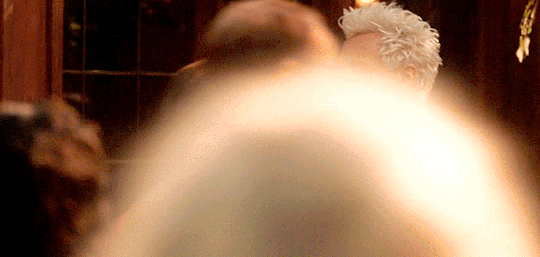
260 notes
·
View notes
Text
writing tips masterpost
hello to my loyal tumblr followers... i am often asked to give writing advice but usually when people ask me this i'm nooooot completely sure what to say despite having a ton of advice to give. it's such a broad question when there are so many different things i can advise on, right? so i thought i'd make a sort of writing advice masterpost where i can compile the tips that i think people specifically in fandoms could benefit the most from hearing, OR that i wish someone had told me when i was still finding my footing as a writer.
hopefully this will be helpful to you. i am putting all of the advice under a read more since this is going to be a long one. let's roll!
✬ paragraph breaks are your friend
the fastest way to get me to stop reading a fic is if i click in and see that there are NO paragraphs made and the entire piece is in a huge block of text. no matter how good your work is, i just can't read it at that point. the giant paragraph makes me get lost, i can't focus on anything... it's a huge no.
the trick is you want your paragraphs to sort of act as a guide for your reader, taking them through the story, keeping them engaged. do not be afraid to do short paragraphs! i can understand wanting to shy away from one or two sentence paragraphs for fear of not having "enough substance" in your work, but the truth is, a thousand short paragraphs is ten times easier to read than a huge block of text.
realistically, you want to have a good amount of variety in your paragraph length. variety is key. readers will notice when your work gets formulaic, and some people will like that, but for others that can turn people away from your work. but don't force it! a paragraph should end at the end of a statement, or if the paragraph is getting too long then cut off the thought and continue in the next paragraph with a transitional phrase.
as a general rule of thumb, you want lines of dialogue by different speakers to be put in separate paragraphs. you also want to avoid doing huge chunks of narration or exposition in the same paragraph as you introduce a new speaker. just make a new paragraph! no big deal. i guarantee you your reader will be way more engaged and nobody is going to come at you for doing more rather than less.
✬ make sure the reader knows who is speaking and when
you don't have to end off every line of dialogue with "she said" and in fact i would really recommend you don't. but you ALWAYS need to have some kind of indication in the text as to who is speaking, otherwise the reader can get lost.
this doesn't necessarily mean that you always have to explicitly say who is saying what, though. if it is obvious in a scene who is saying something -- so for example, a scene where there are only two characters talking OR the dialogue has some kind of phrase, statement, etc that makes it obvious who the speaker is -- then in that case you can just let the dialogue speak for itself. sometimes in writing less can be more. you disrupt the flow of a scene if you start to exposit unnecessarily when the reader could reasonably work something out for themself.
✬ "said" is your friend too
related to the last piece of advice, here's another note: don't shy away from using the word "said".
don't overuse it, either. obviously, you don't want every single line to be "he says" "she says" back and forth, especially when they might be asking questions or shouting, in which case the word "said" probably isn't all that applicable at all. but it's a nice default. if you catch yourself busting out the thesaurus, my recommendation? quit it. just use said. it's not going to hurt you and the reader isn't going to mind.
but yeah, in the event that a character is raising their voice, whispering, inquiring -- there are tons of other words you can use in lieu of said and then an adverb. it's just context-dependent, and also, you don't really want to lean too far one way or another. like i said, variety is key. too much of the same breaks immersion.
✬ if you wouldn't say it yourself, probably don't use it in writing
another related tip. look, i get it. you want to spruce up your writing with synonyms. but the fact of the matter is that a lot of these words that "mean the same thing" on paper actually have wildly differing connotations and if you don't understand what those are you're going to look kind of silly whipping out a word you just found off the internet. we can usually tell, too.
your vocabulary will naturally grow and expand as you continue to read and learn. you don't have to try and force it to seem smarter in your writing. people who can write compelling prose and dialogue without throwing in fancy words they barely understand look a lot more intelligent than people who have a thesaurus at the ready 24/7.
✬ if there's a simpler way to say it, take it
this one can be sort of style-dependent, so if it's not your cup of tea then feel free to take or leave this tip, but in my opinion, taking a whole seven-line paragraph to describe a simple action wastes both your and the readers' time.
how many times have you read a fic where the main characters are having a conversation with these long rambling paragraphs between lines of dialogue? sometimes this makes sense! if you were writing a death note fic it would absolutely make sense for light or L to be pausing every few seconds to carefully analyse their opponent's move... but that's not always the case. sometimes characters are just making small talk.
i'm not saying you can't show off. you should show off where applicable. but there's a time and place. sometimes a scene benefits more from you taking the easy way to describe something and moving on. flowery language is great, but if you're meandering too much the reader will lose interest and attention.
✬ a metaphor is useless if nobody knows what it means
writing is subjective and highly personal. write for yourself first and foremost, and use the metaphors that feel right to you -- but the best metaphorical pieces, to me, are the ones that people can understand and identify with.
you've read a story like that, haven't you? with a reoccurring theme or motif that comes back into play at the end in a way that makes you feel so satisfied and complete? THAT'S what you aim for with literary devices like that. if you write a story that nobody can understand, with metaphors that just don't make any sense -- then you haven't really successfully told a good story, have you?
i understand wanting to have a magnum opus. i think it's easy to fall into the "misunderstood writer" mindset where you want your pieces to be so magnificent that only the likeminded will get it -- but writing is a form of communication. metaphor is just another means with which we can illustrate how we feel. you WANT your readers to understand what you're doing with the metaphors, you WANT the people who step away from your story to know what you were trying to say. you don't have to be obvious, just make it good. make it something that can be reasonably drawn from the text.
at the end of the day flowery language is just flowery language. that doesn't actually make your story good.
✬ grammar intermission
(.) period/full stop: used at the end of sentences. oftentimes not used at the end of sentences in dialogue, because lines of dialogue are considered a fragment of a larger sentence. use a period/full stop at the end of a line of dialogue if the dialogue is followed up by another complete sentence. example:
"i just went to the store," he said, scratching his head.
"i just went to the store." he scratched his head.
(,) comma: used in the middle or to separate different clauses (parts/sections) of sentences. used for incomplete clauses, AKA sections of the sentence that could not function as individual sentences. also used to indicate a slight pause. example:
she reached for the ripest banana, plucking it from the bunch.
a comma can also be replaced by a conjunction like "and" or "but". example:
she reached for the ripest banana and plucked it from the bunch.
(;) semi colon: used to separate different complete clauses in sentences, AKA sections of the sentence that are related but COULD function individually as their own sentences. example:
he sighed as he looked out the window; it had been so long since he stepped outside.
not to be confused with
(:) colon: used at the end of a line that leads into or introduces another line. example:
his fingers drummed restlessly against the window sill. it was finally happening: he was finally leaving this place.
(-) hyphen: used to connect compound words like three-years-old or hyphenated surnames like jones-smith.
(–) en dash: used to indicate ranges of time or distance, like 3–4 hours.
(—) em dash: a girl's best friend. slash j. but an em dash is used to indicate a few different things: an abrupt end to a thought or sentence, a "cut-in" where you interject something tangentially or unrelated before returning to the original thought, or a diversion in the sentence/thought. examples:
"no, listen, you don't understand—"
he scowled—an ugly look on his usually handsome features—and told her to be quiet.
it's not like she had wanted it to go that way—but when had it ever mattered what she wanted?
(()) parentheses: used to add additional context, information, or a semi-unrelated thought that would break the flow of an ongoing sentence without completely taking the reader out. example:
"no, i'm sorry. i just forgot to call you this morning," he said, looking away. (in truth, he'd sat by the phone for fifteen minutes trying to psyche himself into it, but hadn't been able to muster the courage.)
✬ show don't tell, and tell don't show
show don't tell is one of the classic pieces of writing advice that i do, often, think is correct -- but it's a little more nuanced than just never telling your readers what a character is thinking. you want the work to speak for itself without you implanting messages or themes into the reader's brain. at the same time though you don't want them to be doing too much work because it breaks immersion.
this ties into what i was saying above about simpler being better sometimes. you want to be concise especially in scenes that might call for it. a fight scene should be quick and snappy. no need to dig into the physical sensation of being enraged -- just say the character is pissed! but if a character is having a meltdown or panicking, you can get SO much more out of describing how that feels than just outright saying it.
✬ remember your perspective
another huge thing with show don't tell is that you don't want your character to be able to objectively say what everyone else is thinking and feeling -- unless that makes sense for them within the context of the story. really dig into it. DOES the character have a reason to know what their opponents, friends, etc are thinking? how well do they know the other characters? how attentive are they to the emotions of those around them?
it's better to focus on descriptions than labels in that case. say what face a character is making, describe their body language or tone. your character can have impressions, just make it clear that those ARE their impressions. and let your character be wrong! they do not have to be a completely objective source of information.
✬ when it comes to representation, if you aren't confident you can do it well, don't do it at all
i'm one of those people who's kind of of the opinion that white or cishet or otherwise systemically advantaged people have no place being the loudest voices in conversations about representation, least of all AS the representatives. if you are someone with systemic privilege and you choose to portray someone who is oppressed -- that's not necessarily a bad thing. but you need to be willing to do your research and have a sensitivity reader, and you have to be ready for people to say you did it wrong.
not much else to be said about that. your voice on the matter isn't actually all that important. there are people from the demographics involved who DO have stories to tell about themselves that will be MUCH more valuable than your perception of them, so it's honestly better to just let them tell it. that's how i feel.
✬ don't break the rules unless you know how to follow them. in other words, your rebellion should be obvious
a lot of times i see people breaking grammar or other rules and citing "stylistic" choices as their reasons why. which is all good and well, to an extent -- but you want it to be very clear that you ARE breaking the rules on purpose in a way that adds to the artistic merit of your piece.
if you don't know the rules, then it really just comes across like messy work. you both have to know how to apply the rules, and also how to break them in a stylistically significant way. if it doesn't make sense for the rules to be broken, if it says nothing... it's honestly better to just follow them. that's my take.
✬ don't be scared of names and pronouns
i said before that you want variety in your work, and that is very very true -- but it's also true that certain words like names, pronouns, etc will sort of blend into the background in writing. people don't notice them. that means if you're using a name or pronoun a lot in a scene to make it clear who exactly is being referred to...
hey. look into my eyes. breathe. it's okay. you do not have to resort to highlighting arbitrary characteristics of the characters. i know. just breathe. it's okay. use their names. they have them for a reason. it's all good.
this isn't to say that you SHOULDN'T do that, just do it when it makes sense to. if height is something the characters are noticing then use "the shorter boy". if age is relevant, eye colour, hair colour, whatever -- go ahead and use them. but don't be excessive with it. i should not be having to read the bluenette more than i'm reading shuichi's actual goddamn name.
✬ read
this is the huge one. reading other works informs your writing. it teaches you skills and tricks you can use. it helps expand your dialogue and your world view. it might even highlight to you things you do too much of in your own writing. read, all the time, whenever you can. it doesn't have to be books. it can be fanfic, articles, whatever -- just keep reading, because you will be passively absorbing knowledge during that time and it'll help you grow as a writer.
✬ practice
BOOOOOO TOMATO TOMATO TOMATO! SHE SAID THE THING SHE SAID IT!
but listen, it's literally just true. i write almost every day for at least a couple of hours and i have been on a trend of consistent growth for the past five years. go read my fics from 2019 if you don't believe me. i've grown fast and i've grown constantly. you just DO grow through constant practice, even if it doesn't always seem that way.
not only that, but you start to build confidence too. writing a lot helps develop those muscles to a point where you start to realise that you ARE that good and you DO have that dawg in you. or whatever. you just have to keep at it. you're not going to magically improve thinking for six months about how you want to be a better writer without practicing anything about it.
✬ yeah, betas are good
you want to have a good editor. i know that that can feel like having someone ELSE be the reason your piece is good, but that's genuinely not it. a beta reader is a second pair of eyes on your work, someone who can tell you about the issues and mistakes you're missing. they'll tell you when something doesn't make sense. they'll point out your punctuation errors. you don't NEED to have a good editor for every crummy little oneshot... but it's good to have one.
✬ numbers are fine and all but don't compare yourself to other people
i think almost everyone in some kind of creative pursuit wants to get some kind of acknowledgement for it. we want to be the best we can be, and it can be discouraging to receive utterly no validation along the way! i get it!!
just don't get caught up in crunching the numbers. you are not as good as your fanbase is. you alone know your skillset and you absolutely should not say "well this other writer got THIS much attention" because that'll just wear you down. it really will. external validation will only keep you going for so long, and you'll always end up needing more. you HAVE to build your own personal confidence first or you'll crash and burn.
✬ read your writing out loud
there is no quicker way to see if something is wonky in your prose than reading it out loud and seeing if it makes sense verbally. i highly recommend this to anybody who struggles with sentence flow. it's a good one.
✬ yippee hooray!
🥰 and that's what i've got for now. thank you if you made it this far, please take all these tips as you will, it is all subjective of course, these are just the tips that help Me the most when i sit down to write something.
please feel free to ask me for additional advice (on specific topics if you could!) at any time, i love encouraging new writers and i am passionate about writing so i will gladly offer support in any way i can, including beta reading works for anybody who might need that.
take care now 💖
260 notes
·
View notes
Text
Alastor's starting point in season 2
We know that Alastor’s cane in broken right now, which means that he lost a lot of his power.
We also know, that Vees will have a big role in season 2 - „especially Vox” Viv said. According to her, we will learn „about Vox and Alastor’s backstory”. And we also know that Vox saw Alastor being wounded and defeated.
If the writers won’t make Vox use the opportunity and do something deliciously nasty to Alastor, I will riot.

But seriously; both pilot and the first season established Alastor as an overpowered demon who can do almost everything. We know it’s not exactly true, but still - he is (or was?) very powerful for a sinner.
The whole time he was presented as the one in control, a very competent person - he defeated Vox in the reputation battle, he was able to compete with Lucifer in a specific way, he easily destroyed the shark gangsters and Sir Pentious… But you can't do a semi-co-protagonist who only wins, because it's just boring. It's like Aristotle's definition of tragedy: after a good starting it only make sense to show a character of this kind starting to have more and more serious trouble. Season one was Alastor’s exposition, at the end of it the first turning point happened (loosing to Adam) and now it’s time for some interesting peripeteia. Vox on the other hand started as defeated - it only makes sense to give him an upper hand in this part of the story.
Or I’m just relying on the writing theory to convince myself I’ll see helpless Alastor interacting with Vox at some point haha wishful thinking is the best I tell you
#hazbin hotel#alastor#hazbin hotel alastor#vox#hazbin alastor#hazbin vox#hazbin hotel vox#hazbin hotel spoilers#radio demon#tv demon#Just gimme please
96 notes
·
View notes
Text
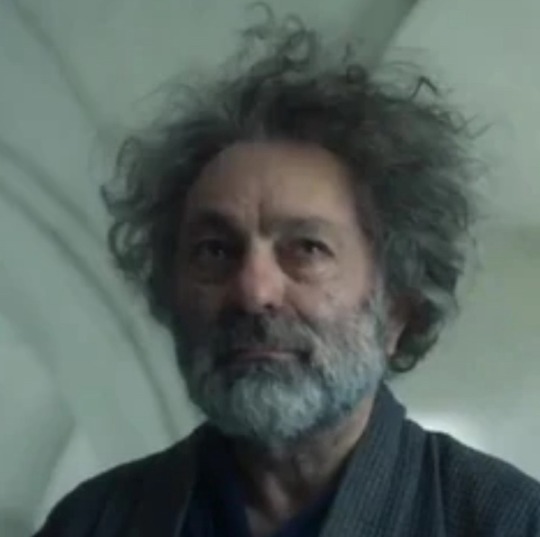
When I first heard Rand would be working in a sanitarium in season 2 and he’d have a friend named Errol, I was kind of annoyed. Why would they spend precious time in a location and on a character that aren’t in the books, when there is so much ground to cover and so many characters to introduce?
But they used this setting and this character so economically, and so efficiently, that I have been completely converted. They didn’t waste a moment of screentime for Errol, and in only a few minutes justified his creation as a terrific vehicle for exposition and to introduce so many important concepts.
As soon as Rand walks in the door we’re introduced to the Aiel War (specifically—I means we got Blood Snow last season but it wasn’t put in a lot of context). We get a personal view into how much Cairhein specifically was affected by it (the effects of which are mentioned a couple more times this season), as well as giving it a relative timeframe—Errol is much older than Rand, so it wasn’t just a few years ago.
We are reminded that Rand looks like the Aiel even with shaving his head, reminding us about his adoption and that he’s an outsider. Here in Cairhein, even when people know and like him, the citizens are likely to have a gut reaction of surprise or fear when they first see him, something that may contribute to his difficulties ruling the place down the road. We are reminded that they are considered fierce fighters, and introduce that their women also fight and are considered deadly.
We are introduced to sword forms! We didn’t get Lan training Rand in either season (although it sounds like we will finally get it next season!), so it’s nice to learn he’s been getting at least some introductory training if he’s going to be a blademaster eventually. It’s also very consistent with the books for Rand to take advantage of opportunities to learn whatever and from whoever he can. We’re reminded about Rand’s heron-marked blade (before it does its important thing and melts in episode 8) and make the connection that it is carried by blademasters.
So importantly, we see how kind Rand is. He clearly knows and likes this crazy old man who’s calling for the guards. He speaks to him kindly without a trace of annoyance that they’re having the same conversation they do everyday (anyone who cares for people with dementia can probably understand that is really hard at times!). He puts Errol’s shoes on for him. This isn’t quite washing feet, which Biblically speaking is an act of humbling one’s self, but it’s definitely the sort of thing you wouldn’t expect the Promised One to be doing routinely. Right now it’s his job to do, but he does it with the care and compassion you might have for an elderly family member. He defends and comforts Errol when another employee is cruel. At heart Rand is kind and loving. Killing, ordering executions, sending people into danger where some will definitely die are all things he will need to do as Dragon Reborn, and his struggle with this will inform a large part of his arc over the next few seasons.
We see the inequality of the Cairheinin system (and then more blatently at the dinner party). Unsurprisingly the Cairheinin separate their health care by wealth and power, and it sounds like the poor ones may not even have a garden to walk around in? The Two Rivers doesn’t really have this type of inequality, and some of the first things Rand does in the books as the Dragon Reborn is make the elite start treating the poor and lower classes more fairly.
And of course we get PTSD and mental illness. Both PTSD and fears of going mad are important for Rand later, so this early introduction helps define the stakes for him.
It was such a short scene, and I’m sure there are other details those with more skill could expand on (the horse that Rand sets upright? the color palate?). I just really appreciated how much the writers crammed into an original character to help lay the groundwork not just for this season but for seasons (hopefully) to come.
101 notes
·
View notes
Text
rayman, eden's feel good american dream story; an analysis
guess who's back with taking ubisoft's silly guys and cutting them open.
yknow, if you strip rayman of his personality, of all the behind the scenes we get of him, we get a run of the mill news reporter that is an immigrant, who by face alone serves as a shining ray of hope. he's easily something that by all means, can be classified as a diversity hire.
immigrant, nonhuman (which in the world of clh can be considered to be equated with poc irl), and notably the only one in his work environment. don't believe me?
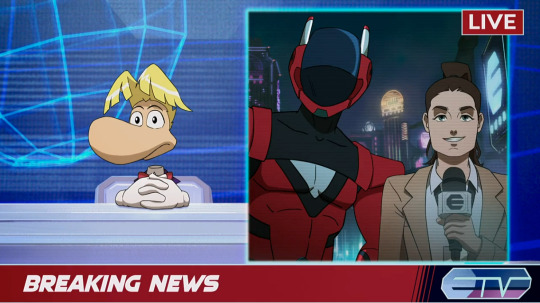
we rarely ever see anyone other than rayman on the show in the form of a coworker. the only time we do see other eden affiliated people, they are both white.
"but you can't see red's face!!" there is a reason his dialogue makes you think of more right leaning people with their claims of 'wokeness is destroying everything' under something like april from tmnt being black and not ginger. he's a caricature meant to represent a specific group of people under fascism; those who have successfully consumed the fearmongering and have let it turn from fear of those that they are told are beneath them into hatred for them. there is also the fact that on live tv he throws up a middle finger, refers to an implied group of immigrant people as 'filthy interdimensional alien scum,' and seemingly gains no backlash for it. yes, the other reporter does try to give red a chance to go back on his words, but he sticks to it. and despite all of this, we get no indication that neither red nor the niji 6 had to apologise or received punishment for this. in fact, red is possibly given more chances by eden due to him being weirdly in charge of bullfrog's containment in a way? (i'm not entirely sure WHY he was there, but as he is one of eden's tv personalities, he's at a possibly televised trial of a terrorist.)
now if you compare this to rayman, who also acted inappropriately on tv by literally saying fuck, you'd come to realise that rayman was treated so much more harshly. he was IMMEDIATELY replaced by a clone of himself, with no warning nor any indication that eden would do such a thing. it's very likely this was one of, if not the first time that rayman has slipped up like this on live tv. maybe it's a repeat offence considering his personality, but then you could argue that red is a repeat offender of the same shit and then you have to wonder why a soldier like red was not easily replaced but someone who is the literal face and voice of eden was with ease.
it's because rayman made himself more than jus a story, he humanised himself by showing a peek of his raw feelings.
remember that cute little exposition of the rayman kids show about hybrids? where we see all of these hybrids working as society's grunts and the kids are told to be thankful for hybrids? it's very sweet and gives a good message! now the rayman kids show is a product of eden propaganda, but rayman very much has a hand in it, most likely as a writer. he uses his platform to speak on issues that has happened and affected him. this can be seen in his biopic.
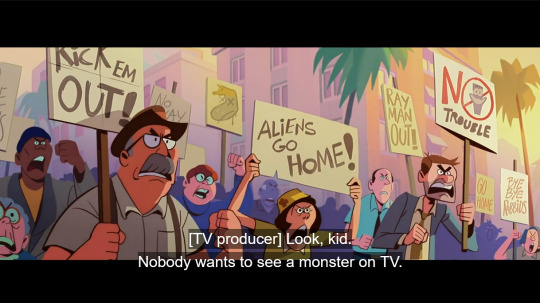
jus sit with this image for a moment.
you ever think about why rayman is specifically made as an alien? why he's specifically an immigrant?
in real life news reports and speeches, there is a difference in implications when people use immigrants and not aliens. you wanna know why?

as someone apart of an immigrant family myself, i live in a community of other immigrants. majority of them are hispanic, and while i myself am not hispanic, i am very aware of how hispanic immigrants were referred to and treated by politicians under trump's presidency. how couldn't i? even as children in middle school and elementary, we had discussions about what trump was saying because it directly targets my friends and their families. they are people targeted by a man who specifically uses derogatory terms to dehumanise them, to make it easier to justify in the average american mind that the government is doing the right thing by keeping out and protecting america from these so-called 'invading animals.'
makes what red was saying earlier feel very on the nose, right?
adi shankar, the showrunner for captain laserhawk, is also an immigrant man. immigrated from india, which by the way, did you know has a lot of people immigrating for the purpose of having a better life? that's a common sentiment that can be found in every single immigrant family's story. i've asked my filipino mother why she took an opportunity to live and work in america, and she told me it's because she wanted to give her children a better life than what we would have had in the philippines. hell, i bet if you share a similar background to me, you can ask your own parents the same thing and get the exact same answer, regardless if you came from latin america or africa, or asia. it's because of the concept of the american dream.
everyone who has ever engaged with any degree of immigrant discussion has heard of the american dream. it's a concept that seems to be consistently proven via word of mouth, with the biggest examples being celebrities. they will always, without fail, eventually speak about the american dream within their backstories. and typically, they will use their platforms to further empower others within their community. it's why people from specific ethnicities tend to group together, why people make art meant as something akin to a homage to their people. it provides hope to the masses, makes you relate to the person on the screen, and believe that this society is truly a gracious one by providing opportunity. because yeah, it may be bad, but it could be worse. i mean we appreciate you! just look!
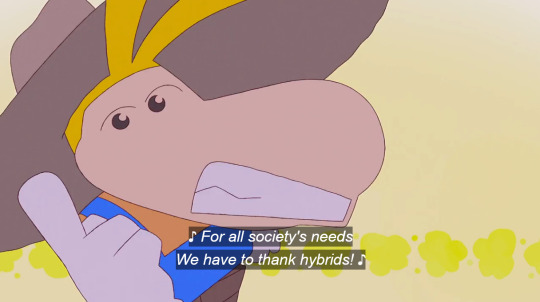
dont mind the fact that the majority of opportunities allotted to you is grunt work, the work where you at the base of the pyramid, with the harder jobs and the jobs no one wants to do. dont mind the fact you will be actively dehumanised, forced to work for hours in conditions we wouldn't put anyone else in, but hey. we appreciate you. we thank you. and yknow, you can become more than what you are. yknow, we let someone just like you be more than what you are! nevermind the fact that if they slip up, they'll be met with MUCH harsher criticism in comparison to someone who isn't you! aren't we so gracious?
i probably sound a bit like matpat's insane out of context real world examples, but this show is filled with political imagery, so let me be.
anyways, let's get back to eden and rayman. rayman, despite being specifically from dimension x as an alien, keeps hybrids in mind when he's doing his work.
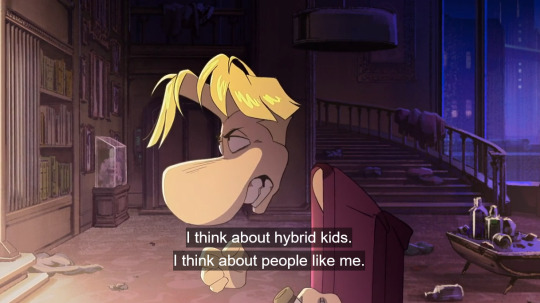
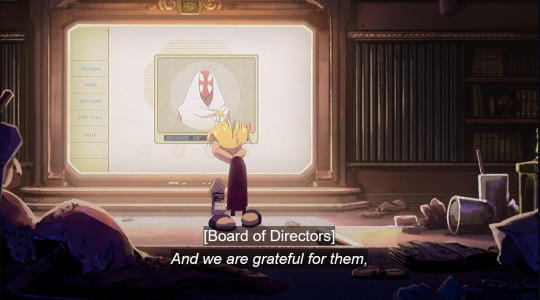
people of colour tend to share solidarity with one another due to the fact that surface wise, we share similar struggles. to grossly oversimplify things, we all face discrimination through our appearances and are oppressed by the rules of a society created by our white oppressors. again, hybrids and dimension x immigrants can be equated to irl poc, and despite being different from each other, there is still community. rayman keeps them in mind, hoping to make things better for the overall nonhuman and nonnative (native as in naturally born) population of eden.
but, rayman is not what he believes he is. because despite everything he has worked for, despite what he has tried to do, he is still a facilitator of the fascist regime that has an active hand in the perpetual oppression of his own people.
one of the core concepts within fascism is us versus them. it's an easy way to instill fear (which is very much needed in fascism to make it easier to lie to the masses) and it's used in multiple layers, beginning with a large group (ex. us versus ussr, capitalism vs communism), then progressively sizing down (ex. saying all eastern europeans are communist, then going smaller and say all those affiliated with eastern europeans are communist) with the goal being to put people against each other and break up community since if you put your minds together, you'll start to realise that the fascist system is bullshit.
what i've personally come to find is that in order to hide the fact that there is fascism lurking is that someone that can be considered a 'them,' an other, will be given a seat at the table. it's so they can be used as an excuse, a human shield, when they inevitably slip up and can be paraded to the masses as proof that the other is not as smart or powerful as 'us.' the 'other' within the 'us' is used as something to look down at, while also justifying to oneself that they have a place, that they are not being oppressed. they have an opportunity as much as anyone else!
so long as they don't mess up.
rayman messes up, and is shunned from 'us.' hes a mistake, impure, clearly not like 'us,' 'us' who had been so gracious to give this 'other' a place. he's cut out and discarded because he has well worn his purpose, and clearly, they can just get another little puppet. they'll dress him up and make him worthy of being one of 'us,' and make sure that this one won't fall to the fault of his little ideas. which is exactly what leads to rayman's transformation of ramon. being forcibly forced out and discarded by eden because he showed his true ideas makes him realise that there was no real place for him within the system. because what good is his work if it leads to what he tried not to create? it's worthless, just as the system it attempts to thrive in is.
tl;dr, rayman is a representation of the american dream, specifically celebrities. he tries to do what he can with his platform, but the fact is that within a fascist system, his impact is not entirely felt in the way he wants it to. that is why he becomes ramon.
anyways if you reached the end of THIS LONG ASS PIECE GOOD LORD thank you!! always open to discuss this and take criticism, my ask box is open in the lil 'who's asking' :^]
#this was a fucking long one my bad#this is inspired by saji sharma's video on mindy kailing#in the sense that it made a few things click nd well here we are#i'm on my fourth rewatch and yeah#yeah i had to say smth bc i dont think anyone has said shit abt this?#i blame the fact that i believe theres not that many poc doing the lil insane analysis thing i do#which is fine btw#also sorry if i got anything wrong !!#im slightly going off of my own memory sooo#captain laserhawk#rayman#clh rayman#captain laserhawk rayman#all the rayman tags bc idk what to do#character analysis
144 notes
·
View notes
Text
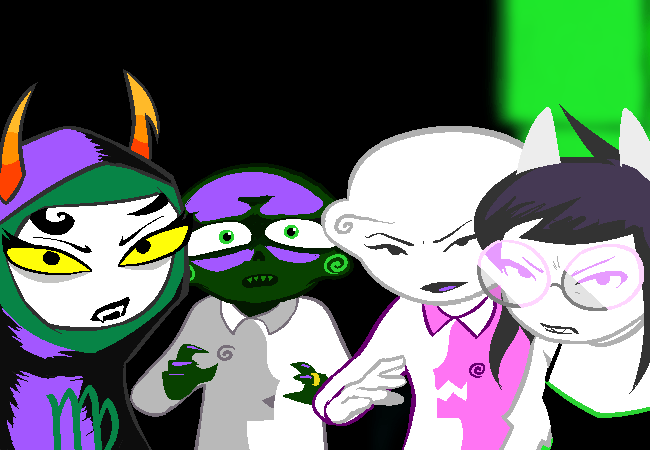
Oh man I gotta say the panels for this update are super cool. The art team is doing a kickass job.
Spoilers beneath the bar it does give us an idea of the scope moving forward. I was really hoping the characters were gonna talk about their classes more, but the context for the story is important too I guess.
Alt Calliope’s explanation for why the story has gotten so convoluted and fucked up out of hand in ways unsatisfying to everyone involved is pretty good honestly. Yeah it alludes to the meta of the writers/audience relation to the work, but that honestly is what makes it such a genius choice even if it seems like a cop out on the surface. Homestuck has always been super meta, it’s one of its core pillars, and the new team have been very honest about the state of homestuck and how they feel about some strange story choices they inherited.
I also think it’s really fucking interesting that the house being symbolic of the narrative and that transforming into this convulsed fuckery reminiscent of how the kids built their houses up in Sburb. That imagery is golden. There’s a lot of good art in these updates. So much good art. I would like to beg and plead with both the HICU and Alt Callie though to not deny me further classpect exposition this was RIPE FOR IT.
There might’ve been a bit of it with the way Callie describes their presence, but I think they might’ve been meant as a reference to the abilities of Lord English she got from snack time. Hard to say, though it seems referential.

#homestuck#hs:bc#upd8#kanaya maryam#roxy lalonde#jade harley#calliope#alt calliope#dreambubble#homestuck beyond canon#hs:bc spoilers
57 notes
·
View notes
Text
How to handle info dumps that are rehashes for the audience, but needed for the characters
It’s incredibly common to tell a story where character A goes through something that deeply affects them. However, no one but character A and the audience know about this thing. A good portion of the story’s tension will come from the audience waiting to see character A confess the truth of The Thing to another character or even to a larger cast.
However, such info dumps often take a long time to write out in dialogue format and that presents a conundrum for the writer: you need to let character A tell their story in full, but the audience will be bored if you do that. Because the audience already knows the full story and they don’t really want to read a summary of it.
So what do you do?
You use one of my favorite writing techniques! I’ve never seen a name for this thing, so I’m going to call it “emotional exposition”. You can call it whatever you like. The basic idea is this: you skip the dialogue and focus on summarizing the events in an extremely short fashion that evokes the right emotions in the audience.
For example, say Alice saw someone get murdered and she’s kept that secret for a long time. This scene was the book’s opening, though, so the audience knows the full details. Alice is now confessing what happened to her friend, Sarah. Sarah gets the full dialogue and detailed information. The audience gets this:
Sarah watched in silence as Alice rose to her feet and crossed the room, coming to a stop beside the window. For a long while, the young woman didn’t say a word. She just stared out into the night. Finally, just as Sarah was considering saying something, Alice started to talk.
Her voice never rose above a whisper and yet Sarah could hear every word with perfect clarity. She sat there, horror growing, as her best friend spoke of a little girl hiding in a closet, smothering her sobs as a villain took away the only family she’d ever known.
Because the audience already knows what happened, they don’t need to know exactly what Alice is saying. What they need to know is how Sarah is reacting to what she’s being told. That’s why you can do this dialogue skipping thing and just give a brief callback to the events that are being discussed. It’s enough to remind the audience of what happened, but you trust them to remember the important stuff. Then you can move straight to the fallout of Sarah’s reaction to Alice’s confession without bogging the story down by rehashing things the audience already knows.
I use this technique and similar stuff all the time when I’m writing and I highly, highly recommend it. It allows for these emotional moments to be far more impactful because they’re not bogged down in unnecessary details. It also lets you skip over explaining the same thing 10 times even though the characters might need to.
1K notes
·
View notes
Text
just speculation, and after this i swear i'm going to write what i did appreciate in the show, but.
to me it kinda feels like riordan cast these three kids and went, these three children, they are my trio. and he should have! they're amazing - they're cast Very Well.
but then it feels like riordan assumed that because they already embodies the characters to him, that he didn't need to do characterbuilding in the actual fucking script. i get the feeling that the writers and showrunners are constantly both overestimating and underestimating walker leah and aryan. the scene with thalia? very much felt exposition dump. leah did what she could with she was a hero (and she kills her emotional moments, the parts that show annabeth's softness), but the themes came before the characters here and that for me feels a little unexcusable. annabeth is smart, we all know that, so riordan constantly forgets to show us that annabeth is smart. percy explains to annabeth how the lotus is in the air not the food. like HOW IS IT PERCY THAT FIGURES IT OUT BEFORE ANNABETH?
i think maybe grover/aryan got the best treatment out of them because of his scene with ares and the scene with the animals on the street, but even then the "betrayal" at the beginning felt slightly off. because percy never fully finished reacting to it (or if he did i don't remember which itself is not great)
which gets to another part of the writing / directing that's really getting to me. which is the relationships between characters, and how that's undermined by how short the scenes at the beginning of the show are. because more than half of the dialogue in the first two episodes ends up as (slightly unnatural or at least not in character exposition) and because the scenes (that is, however long a section before they cut to black and setting changes) are all wildly short (at least to me) there's no time for the characters to breathe. there are hardly any beats or pauses or just moments of breathing in a character's emotion or reaction.
going back to thalia's explanation, the scene ends after the exposition. going back further to luke showing percy around? all exposition. the subtle character moments are only in the scenes without dialogue and for a brief second at luke's introduction. there's no long scenes (from what i experienced) in the downtime, in the relatively quieter moments. only long scene i can think of was the fight with the minotaur.
even later, the scenes that are emotional and long? sally and poseidon. they don't allow grover's self-recrimination to breathe. they don't allow the panic after almost getting pulled into the Pit to breathe. the scene cuts, the emotion is squashed, and the next scene is more action, more traveling, more gods.
i think that this is partly why clarisse made such a big impression on me, because by design she can't be a part of the exposition. she's actively antagonistic towards percy, half of her scenes are some sort of action, and so the little characterization that we get of her (this time little is justified bc she's a side character) works really really effectively. you clock her character, her motivations immediately.
the scenes are getting longer. i think that this specific critique is one that will get fixed as the writers get used to the visual medium. but the rest? i really really hope that the writers realize that the characters just. need more space. i hope they trust their actors to play out these emotional scenes and i hope they give them more emotional scenes, more banter, more silly moments.
#percy jackson#percy jackon and the olympians#pjo tv show#pjo show crit#please#you cast so amazingly#so why ... why don't you give them more to work with#rr crit#.
121 notes
·
View notes
Text
Man its been weeks and I’m still soured by the conclusion to Fontaine’s main story. I'll just rant here
There were a lot of things I didn’t like about it (Arlecchino's altruism being played straight, Traveler being out of character, the lore exposition ass-pull with the prophecy slates, the weird logic about how destroying a Gnosis could potentially wake up the Heavenly Principles but not fucking destroying an Archon Throne when Celestia forced everyone to fight a GODDAMN WAR TO ESTABLISH THEM-) but the biggest offense to me was how Furina was handled. This was marketed as the grand finale of the arc, the climax with Furina at the center of it all. And she got shafted. Big time. Furina had no agency in the plot whatsoever, nothing she did had any effect on how things turned out, and she didn’t even have the dignity of fully understanding why it all had to happen that way.
(Also I will preface this with yes Furina and Focalors are technically the same person with the same origin, but after the split Furina lost all her memories as Focalors. They are two separate consciousnesses with different experiences, and therefore I will treat their individual choices as their own)
I’ve seen people try to argue that no, she chose to take on this role knowing she would suffer, that she didn't HAVE to go along with it. And she was even working by herself to solve the prophecy without relying on Focalors, she wasn’t a puppet/pawn! But the thing is she was essentially in a hostage situation. If she didn’t do things exactly as dictated by Focalors people would DIE. Like there is a reason why criminal punishments are lighter when it’s found the perpetrator was coerced into it! And her researching how to avoid the prophecy changed nothing about the outcome, she could have sat around eating cake and the story would have word for word turned out exactly the same. All that information served to do was highlight her suffering and draw the audience’s sympathy. That's what I mean about her not having agency, it's not about her ability to act as an individual but how her actions had an effect on the overall plot. None of her choices outside of the role designated by Focalors did anything to change the situation for better or worse.
And to top it all off she didn’t even understand WHY this all had to happen. Why do people dissolve in the Primordial water? How does her pretending to be an Archon play into solving the issue? Why can’t she confide in anyone? What the hell is Focalors even doing? She doesn’t learn the answers to any of these until after everything was over, and not even from Focalors’ own mouth, it was relayed to her by Neuvillette.
Speaking of Neuvillette, I’m not gonna lie I’m sorta annoyed at his existence because it felt like Furina was shafted for him. Everything is very tilted in Neuvillette's favor. He gets his powers back, full control over Pneuma/Ousia, final say in trials, the ability to hand out Visions, and just straight up the ability to manipulate life itself. And okay all these things were his to begin with lore-wise, whatever, but he also becomes the "lore important" character after this at Furina's expense. Furina doesn't have her memories as Focalors, she can't tell us anything about how the world works, about Celestia, about what happened 500 years ago. Even though other Archons didn't give us much either for one reason or another, they at least HAVE that knowledge, and are therefore guaranteed to have involvement in future events with the Abyss and Celestia. Furina at the moment, doesn't. Neuvillette has it now. And all that talk about Focalors judging Celestia? Also Neuvillette's job now. And it feels like it was all stolen from Furina from a story-telling perspective because again, she didn't know of the plan to return his powers. She didn't even get to explicitly agree with her other self that he should have them back. The writers really seemed to go out of their way to place him on a pedestal at Furina's expense, which irks the hell out of me.
There are some opportunity for future interludes to turn the current state around, and they probably will since Furina is still being marketed as an Archon, but as it stands I want Fontaine to be over so we can move on to the next disappointment.
#I'm actually ok with the trial#I thought it was dumb but from the characters perspectives Furina was willingly hiding key information#and they already gave her a chance to come clean with it privately#so they had to corner her#and the writers needed to build up to the climax#so even if it was contrived I give it a pass#It was undoubtedly dramatic and I was very moved by Focalors sacrifice#but I couldn't disagree more when people call it peak writing#maybe it depends greatly on whether you liked Furina before her past was revealed#Bc despite the implications that there was more to her even early on people looked at her act at face value and thought she was insufferabl#and it was after we were shown the extent of her suffering that opinions took a 180#and while I'm glad for that I can't help but be a little bitter that it took THIS for it to happen#amy rambles
63 notes
·
View notes
Text
NATLA Debrief: Episode 3 (by yours truly)
Hi again! If any of ya'll are interested here's episodes 1 and 2. Thank you to those who have been following these deranged, unorganized posts, especially @phoebester (Just an fyi this will be hella long, just like the other two)
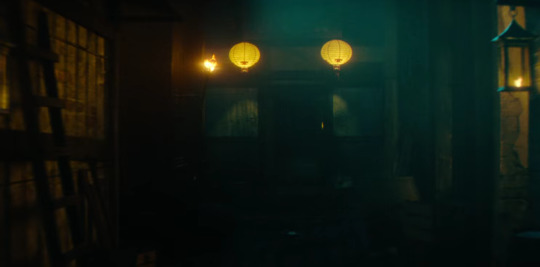
First of all, the way they framed the opening resistence scene was genuinely so cool because I immediately thought back to the cold open for the first episode. The streets are so similar that's where my mind went RIGHT AWAY and if that is not good set design and filming I don't know what is.
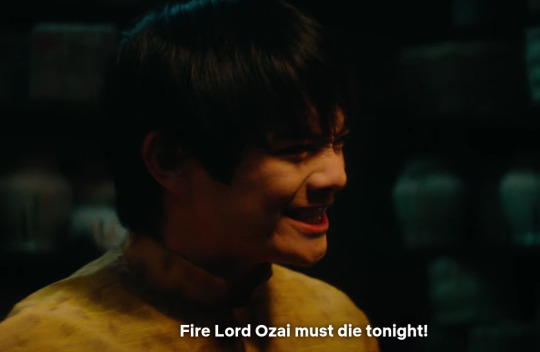
The resistance scene was so powerful for so many reasons besides those small details, too. The concept of a resistance within the FN was never addressed at all within the cartoon and I can't express how glad I am that they added this. It just makes logical sense that some people would resist, especially while so many are dying in war, and it really serves to humanize the FN people in a way that's reminiscent of book 3 ATLA. Perfect way to expand on the source material and introduce core themes earlier in the show (M Nite should be taking notes).
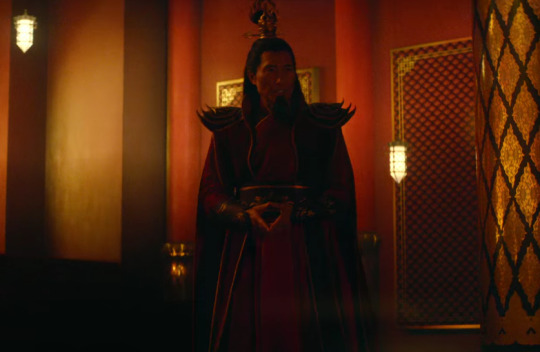
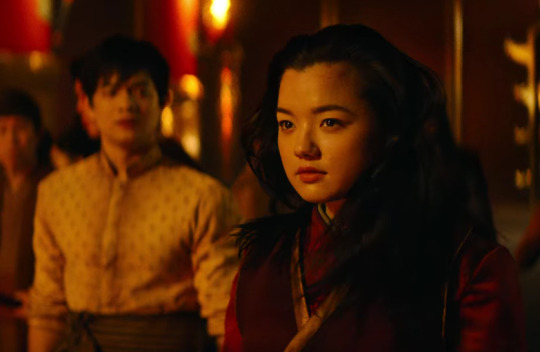
It was also a perfect way to introduce both Ozai and Azula's characters. Ozai is this menacing figure stepping out of the shadows (quite literally), an almost larger than life villain who seems to have every move planned and everything calculated. He's brutal and efficient and we can see that. Azula is conniving and smart, the kind of girl who can fool anyone and come out on top, but is ultimately still a weapon under her father's control. You can tell from the moment Ozai mentions Zuko that she is the underdog, but she is determined that it will not stay that way, and she seems just terrifying enough to succeed. (also idc what anyone says Elizabeth Yu has mastered Azula's look and general vibe. I feel like the whole 'miscasting' debacle was a mix of fatphobia and being shown the wrong stills before the show came out. She looked sort of sweet and innocent in those but I get absolutely none of that from this scene)
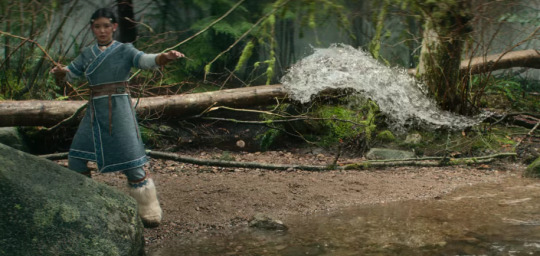
Ugh the exposition was great and then they have to give us this. What the absolute hell did they do to my Katara? Like there was a whole ass episode in the cartoon devoted to her getting mad because she wasn't progressing as fast as Aang and then in this fucking adaptation the maddest she sounds is when she emotionlessly declares, "I don't get it" to convey mild frustration. I'm sorry Kiawentiio, you're acting is great but the writers clearly have no fucking idea how to put your emotional range to good use. The same problem was present in the last episode and I just don't see them being able to fix it significantly enough at this point, even if they have a desire to. Not to undermine that, but there were a couple good points in this scene: Aang mentions something about bending being "beyond thought" which gives bending a more spiritual aspect that I like, and Katara's PTSD is brought up again in an intelligent way, but still, that doesn't matter if they're going to completely butcher her character. (side note: when is Aang going to learn waterbending? they haven't shown him training at all and I'm getting worried)
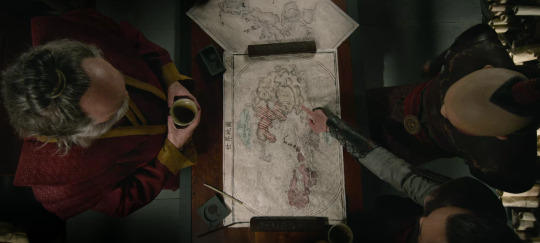
This scene was fine or whatever but what in the absolute fuck is going on with Zuko and Zhao? Are they not going to do the agni kai? Like I know there's still animosity there but they were really just sitting there (semi)-calmly enjoying a cup of tea and demonstrating only mild dislike for each other. All I have to say is if they remove the agni kai altogether I'm gonna be so fucking pissed it'll bug me forever and I'll be fucking insufferable.
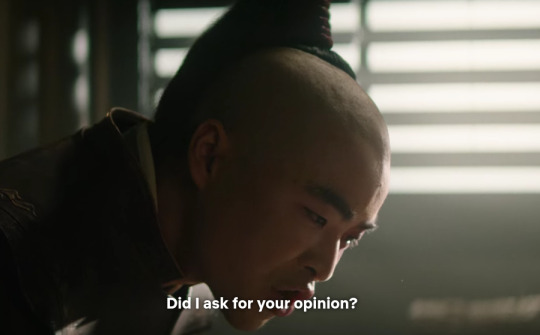
Also Zuko is so mean to Luitenient Jee for no reason. I know it's because his abuse makes him see any kind of comradery as weakness so it's a good detail if that's what they're going for but ngl I also find it a bit funny. Like what did he ever do to you? And Zhao taking three tries to pass his officer exam is so perfect too like what a fucking looser lmao.

Ba Sing Se looks beautiful. There's something so mystical about it, especially in the way Aang describes it as they walk up to the gate. It's this hub of culture and science and art, but it's also incredibly militaristic and so changed due to war it's almost unrecognizable to someone who was there a hundred years ago. The adaptation of cultures during times of change is something ATLA does so well and I'm glad to see that it's continuing in the LA.
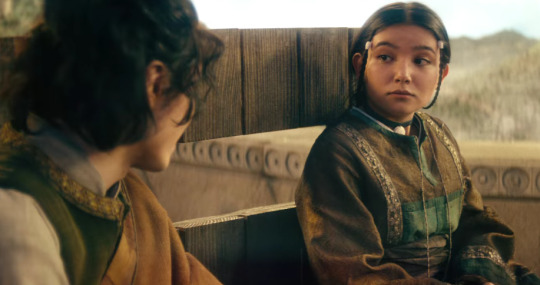
AHH Katara was so awkward during this whole scene and I loved it. For one thing Sokka's commentary was absolutely hilarious but it's also this reminder that Katara has been relatively isolated from other children her age and her brain is like "cute boy flirt how" and its so fucking funny. It might not be the same Katara as the cartoon who is effortlessly comfortable wherever she goes but this is so much more realistic and if she's going to be a bit different this is probably the best thing for them to change (now keep the awkwardness and give her back her anger Netflix I'm begging you)
I am slightly concerned because it looks to me like they're trying to condense at least four episodes into one and I'm not sure if that's going to be a cohesive plotline or a complete mess or not but if handled carefully I think they might be able to pull it off.
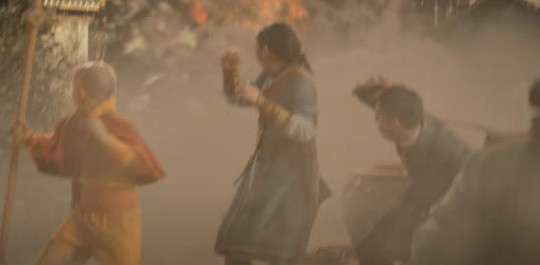
Ooooh the explosion was super unexpected and totally cray cray thanks for keeping me on my toes. I'm assuming it was Jet that planted the bomb although I cannot for the life of me think why. Anyways Teo was adorable I'm adopting him.
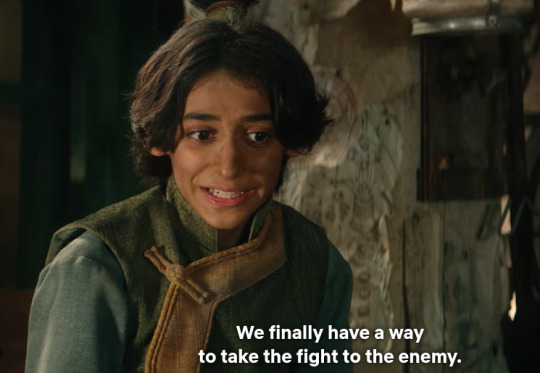
Also I am so so so happy that they gave him a little more depth beyond just 'happy glider kid' and gave a bit more nuance to his character. Of COURSE kids who grew up in war are going to be desensitized to the bloodshed OF COURSE they're going to be a little vengeful and be thinking about ways to win the war OF COURSE Aang is going to be uncomfortable with that because he didn't grow up with that militaristic mindset even if he did loose everything OF COURSE that's not going to change the fact that kids grow up hearing about death and experiencing loss as extremely young children versus Aang being suddenly thrust into this responsibility and grief because he didn't grow up like that he grew up in peacetime it just makes sense. Good job Netflix this was wonderful this was perfect I loved it.
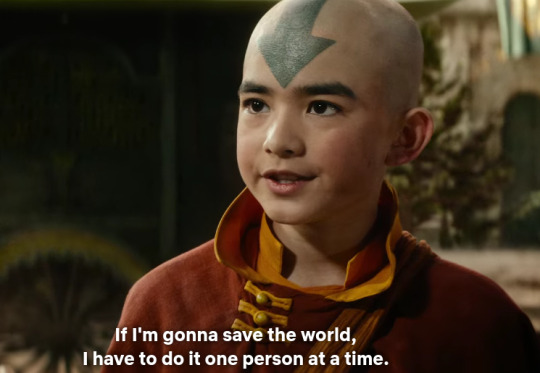
Okay don't get me wrong I love the way Aang wears his heart on his sleeve I love how their in-the-face storytelling makes a bit more sense with how open and emotional of a person he is it's just part of his character that was improved upon by the LA in my opinion but this is also just... such a misunderstanding of the group dynamic. Like why isn't Katara seeing these people and thinking "I can help with this I have to help with this" and Aang giving this speech to Sokka jumping on the bandwagon? I would even accept them seeing the destruction together and mutually deciding that they need to help the people there (this would probably be best as it allows us to see both character's compassion) or Aang saying something about it and Katara immediately being like "ur absolutely right" but of course they can't do that all we need is a lengthy speech from the protagonist while Katara stands there like robot girl. My mistake.
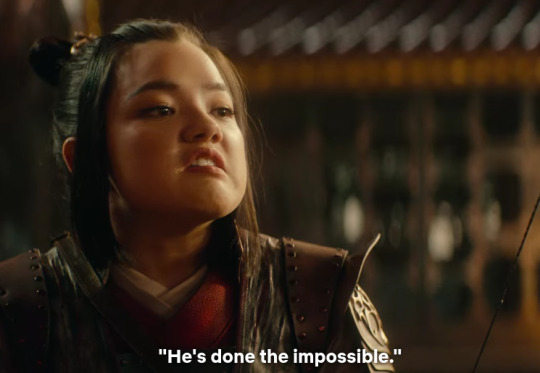
STOP because her mocking face is so fucking perfect I love Elizabeth Yu she's perfect. Anyway, I think that they're kind of... adjusting her trauma a bit? I mentioned earlier how I feel like she's shown as a little more scrappy and an underdog as opposed to perfectly calculating and not a hair out of place, but after this scene I feel the need to expand on that. In the cartoon, Azula's abuse from her father centers around his unattainably high expectations for her that eventually cause her ultimate breakdown and the conclusion to her devastating character arc. But in the LA, they're portraying her as less of a prodigy and more of a hard worker. She still has incredibly high expectations, but in this version, she never meets them all the time. Her brother is almost leveraged against her in a way. Even if she feels like she is the best and has the constant need to prove she is the best to her father, there's always going to be this nagging insecurity that she won't be good enough to measure up to her brother. She's not being told she's worthless like Zuko, but she's not reaching every goal like cartoon Azula, either. This also might explain why she has arrows. In the cartoon, weapons are viewed with disdain by firebenders, making Zuko using them so controversial, but Azula definetely doesn't seem to be hiding her talent for the bow and arrow and even if it was a her-sneaking-away-to-practice sort of situation that's not very in character and I don't think she would do that. I think in this version she probably has them because she's trying to find every possible way to prove herself to her father beyond just firebending, and mastering a weapon is a way to do that. I'm not sure how I feel about these changes but she is clearly a different character in this version than in the cartoon and moving forward I'm going to treat her as such. (I've noticed this a bit with all of the characters except possibly Sokka: they're different people. I think this actually might be intentional. [even so I still don't like their characterization of Katara her trauma hasn't changed very much to my knowledge she should still have the same core drives and character traits])
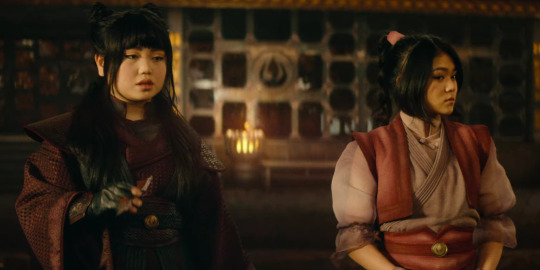
As well done as Azula was, there was relatively nothing in the Ty Lee and Mai department. They're just kind of existing, watching her train. Ty Lee is vaguely cheerful (and her costume is great btw) and Mai has one line about exploring the world that gives a bit of insight into her character and has a monotone voice. They're both clearly a little scared of Azula but that's basically it. Hopefully we get more on them soon.
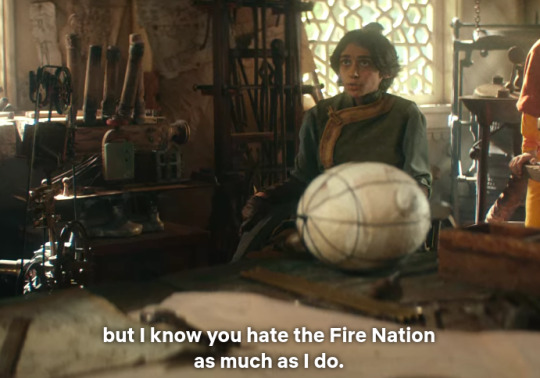
Back in Ba Sing Se, I noticed a bit of a parallel between Teo and Katara. The Mechanist mentions that they lost his mother due to the war, which reminded me specifically of Katara. Throughout this scene, we see that Teo remembers his mother's philosophy and adopts it into his own mindset far more than his father's. Their situation is different because while Katara is arguing for compassion Teo is arguing for fighting back, but they are both fundamentally saying the same thing. It's not enough just to accept their lot in life and try to survive or fight, it's about the big picture, and about defending the things they love. While Katara and Teo both approach this subject from a very different front, the core idea is the same. It's also telling how they are dismissed initially as idealistic for their values when they are really upholding what their mothers stood for in their eyes: for Teo, a symbol of hope in her retellings of the stories of the avatar, and for Katara, a symbol of kindness in her reminders to remain empathetic despite the horrors of war. Make of this what you will, I just thought it was a nice little parallel.
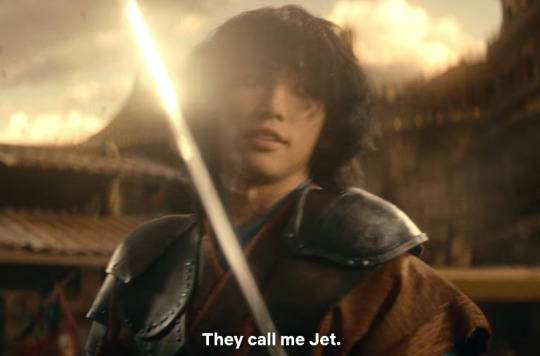
Anyway, allow me to have a few words on the whole Jet thing (in bullet points because I don't have enough brain power to do this)
I'm glad Jet got his freedom fighters outfit. I was a bit worried when I saw what he was wearing in the first scene he was in because the fit is iconic, and so are the swords
God he's so fucking dramatic "they call me Jet" while the sun glints off his swords and he turns slightly for affect it was so funny I laughed out loud
He and Kia have no on-screen chemistry I'm sorry. Like even the fight scene was so awkward and every time they speak to each other they sound so stiff. They're good actors independently but whoever was watching their chemistry check (I'm assuming they had one pre-production but judging by this crap I wouldn't be surprised if they didn't) was either asleep or it was their first day because there is NOTHING there
What the hell did they do to the Freedom Fighters? They're so cheesy and the costumes are so bad (especially Smellerbee's). Like seriously that entire fight scene was so awkward idk what the hell happened there but it was nowhere near the quality of the rest of the episode so far
Overall, I'm not a huge fan. Also where is Sokka I'm pretty sure he's supposed to be there somewhere
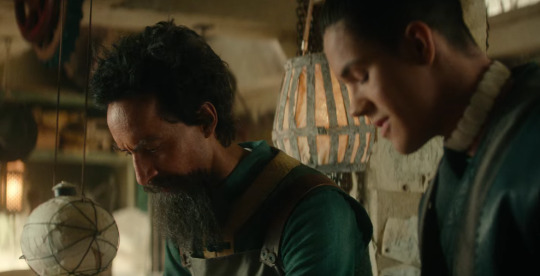
Okay here's Sokka finally. Are they just taking him out of the Jet shenanigans entirely? I wouldn't be surprised considering how many episodes they had to condense but still I would have liked to see that. Oh well, I guess they had to have Katara do something in this episode instead of just stand around while her brother and Aang have huge plot points. Anyway, this scene was very interesting to me. Sokka and the Mechanist bonded in the og but not to this extent, and I honestly liked that they did something a bit deeper with it considering they don't have as much screentime to establish Sokka's daddy issues (for lack of a better word). Anywho the Mechanist mentioning that there are other career paths to take besides just being a warrior was super cool and I think we can glean a lot from it about Sokka's future character arc. Maybe in this version he doesn't perfectly live up to his dad's expectations and instead finds his own way? It was nice to see Hakoda proud of him in the original but if they go down this path I definitely won't be mad. It's interesting while staying true to the character, it's just a different direction.
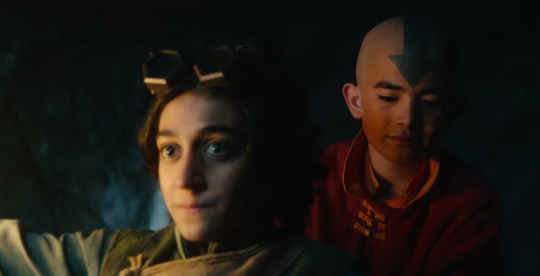
The scene with Aang and Teo was cute. They're both good actors who play off of each other nicely, and Teo talking about how he doesn't want to follow in his father's footsteps lends a bit of insight to the conversation the Mechanist had with Sokka. He probably mentioned Sokka's dad because he wondered if his parents were engineers too and maybe is looking for a bit of an apprentice since his son doesn't take after him as much. This is also another way Teo conflicts with the Mechanist's way of life and may be more similar to his mother.
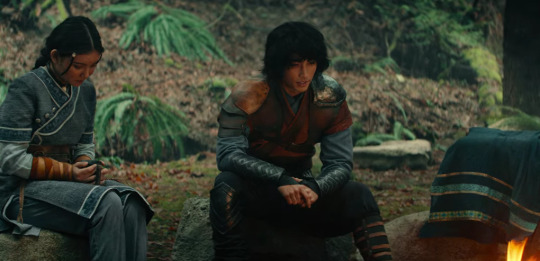
The jetara scenes at the Freedom Fighter camp had a much better dynamic. I think the fight scene was probably just them figuring each other out as actors, it just sucks that it seeped into the final take. I confess I was a bit disappointed that the Freedom Fighters didn't live up in the trees, but I guess that would be a bit difficult to engineer. I also noticed how Jet repeated Teo's "if not us, then who?" statement, which is probably just your basic commentary on how the future generations are our hope blah blah blah. It's a major theme so I shouldn't be as disinterested as I am in it but as it stands I'm still not totally thrilled with the Jet plotline as a whole and I think that may be affecting it. I feel like Sokka should be here to add some variety and spice things up a bit it's kind of boring.
The last jetara scene was definitely the best yet. I can't get over how happy I was to hear Jet say his mother taught him to fight. So often we hear how dads or older brothers are teaching the women in their family to fight but here we have a canonically badass male character saying that an older female relative was the one who taught him. One of the major complaints I have from the cartoon was how for all its talk about women being able to fight and its supposed feminist message, there were no women of the older generation fighting at all except for Jun, who wasn't even a particularly moral character like all these older men. We do have to remember that the cartoon started production over twenty years ago so it is a product of its time, when feminist issues weren't very mainstream. Another factor that might have contributed to the lack of feminism in the original was the generational discrepancies; millennials were the first to have widely accepted equal educational opportunities in the US, and even though educational opportunities are still affected by sexism, college became the norm for both male and female students at that time. This isn't to say women older than millennials didn't go to college, but this is around the time women and men started to become relatively equal as of percentage seeking higher education. Basically, they were the first generation of women expected to have careers, and therefore the writer's minds were probably shaped alongside a similar number of female peers, but primarily by men. This could have contributed to the lack of older women, but as times changed, so to did the amount of older women in professional fields. This line is a reflection of that, and I hope we continue to see more badass older women and older warrior women and women in power as the LA continues.
Other than that, I did take my shipping goggles out during this scene at the "sunrise" bit, and it wasn't about jetara. I heard from other fans in the zutara tag that the "you rise with the moon, I rise with the sun" line was removed but I keep thinking about how Katara is legitimately drawing power from remembering the sun rising, a time when the opposite element, Zuko's element, becomes more powerful. I know I'm reaching, but while I mourn the loss of our beloved "you rise with the moon, I rise with the sun" I have to find a new version. Anyway I think we should call this sunrisegate lol
Also, the way Katara is extremely hesitant to talk about her trauma whereas Jet seems completely fine with being emotional and dumping out exactly what he was feeling may have been a device but it does remind me of something I read about how ppl with PTSD will often react very differently when sharing their trauma and the same is true for many other trauma induced disorders. It was probably unintentional but I still thought it was a nice detail.
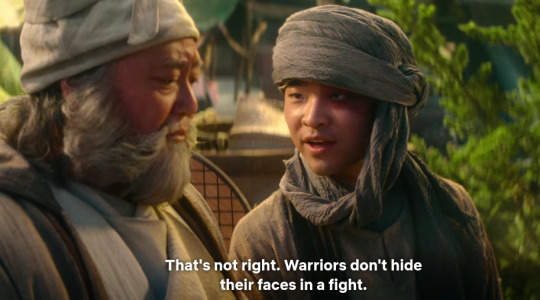
Anyway on a less serious note Iroh and Zuko's dynamic is still top tier. I've seen a lot of people complaining about Iroh's character but I don't see anything wrong up to this point. I might be in for a shock in future episodes but I have genuinely no idea what they find so off putting. He's a great actor and the character has legitimately not changed. The line above was a bit undercut by the fact that he's standing in the middle of an enemy city with a cloth half wrapped around his face to keep part of his face from being seen, but I'm just gonna take it at face value (haha pun). I think the thing Zuko despises most is cowardice, and it affects his perception of the war in a huge way. He calls Aang a coward for escaping from prison because he was running away or whatever and I've never considered Zuko a particularly logical character but it's like... bruh he's outnumbered like fifty to one what he is gonna do? Anyway his definition of cowardice is directly tied to his honor and his perception of it in relation to his trauma and the way he held back in the agni kai and him perceiving that as cowardice maybe... Ya'll got me? This isn't fully formed because I obviously haven't seen this new rendition of the agni kai but I'm guessing the events are basically the same. Do with it what you will.
I skipped over the Azula and Zhao scene because I don't have any groundbreaking commentary except to say that I liked it. It ties Azula into the story nicely and gives Zhao something actually interesting about him (I don't hate him as much as I did in the cartoon so whenever he comes up on screen I just sort of yawn).
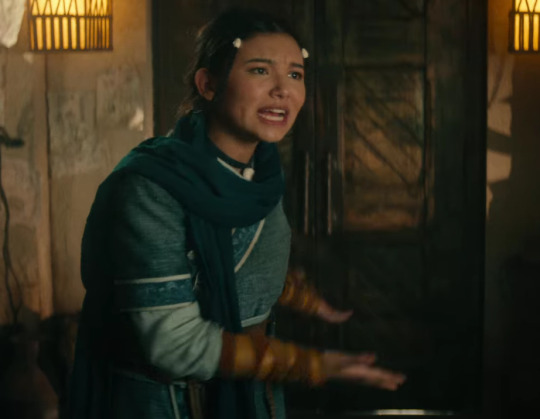
Anyway, it was nice to see Katara get a bit angry. I think this captured the gaang dynamic pretty well. Aang being relatively neutral/ quiet while the siblings argue and Katara gets twice as mad as Sokka. Also he may have had the last word but she had the last laugh:
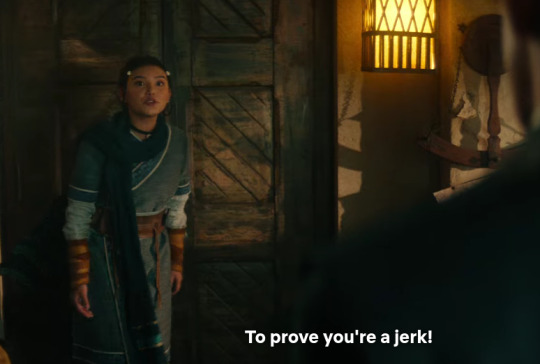
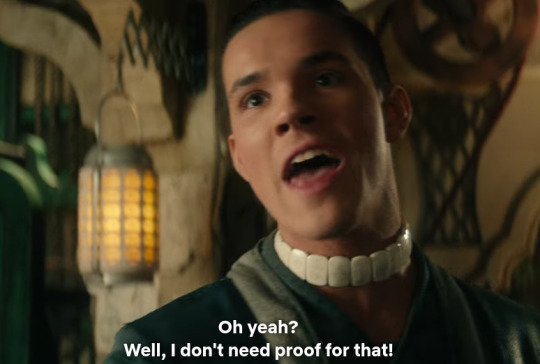
Again, the sibling dynamic was really great but I didn't feel like Katara was carrying it as much as in previous episodes. Sokka actually played his part in making it interesting and realistic. I don't think this single argument is enough to redeem Katara's characterization in my eyes but at least we know now there is a little spark there.
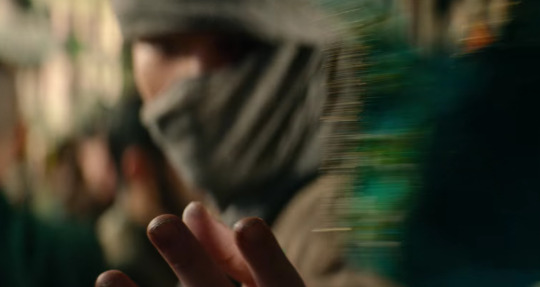
AHH THE SCARF SCENE! Scarfgate was everything I could have asked for and more. Like why does he appear directly behind her like that unless he's trying to fight her? Why does he just let her go by like that? Why does he hold out his hand in the first place? Truly is the Watergate of our time it deserves that name. (also in the same episode as the whole sunrise thing? come on) I'm probably being baited but at least I'm enjoying it.
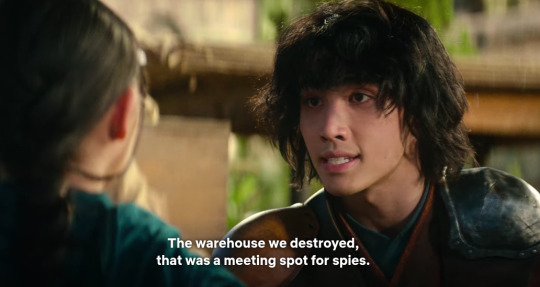
So I was right about the bombings! I can't believe all those cute little kids are terrorists but I couldn't believe it in the cartoon either so I guess that checks out. Either way I find the bombing far less forgivable than trying to take out the Mechanist. Innocent civilians were hurt and even though I know there was a real possibility that civilians could have been hurt in the attempted bombing for whatever reason it just seems... more brutal somehow. Like the first one was in the center of town, you know? Anyway terrorism is wrong I hope Jet finds his way.
(I was worried about how they were going to tie all the seemingly unrelated plotlines together but I think they pulled it off. Again my main problems were all concentrated around the Jet plotline but when the Mechanist was tied in it became a lot more interesting)
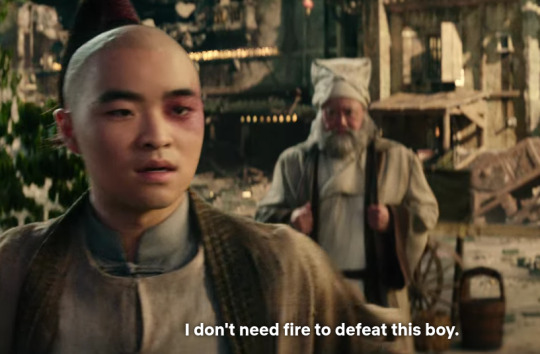
When I heard this I was like "son ur about to get ur ass kicked" but the funny part is he was kind of right. Like when neither of them were bending he was winning. I guess in all fairness he is a lot bigger than Aang but I don't feel like that was an accidental detail. Anyway, I think this fight scene was the most entertaining yet and so much better than jetara against the firebenders earlier. Maybe the affects for water are just worse than air and fire (it feels slower somehow) but I'm very partial to this fight. And that's saying something because I usually fast-forward through fight scenes or just kind of tune them out or barely watch, so you know it was really good.
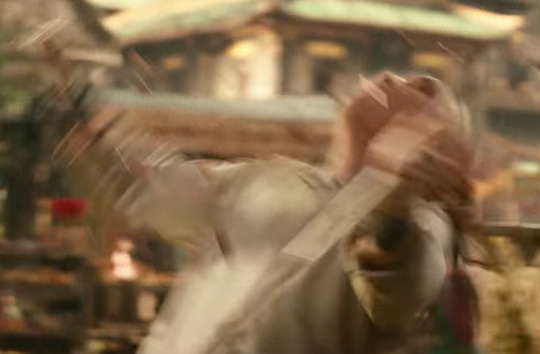
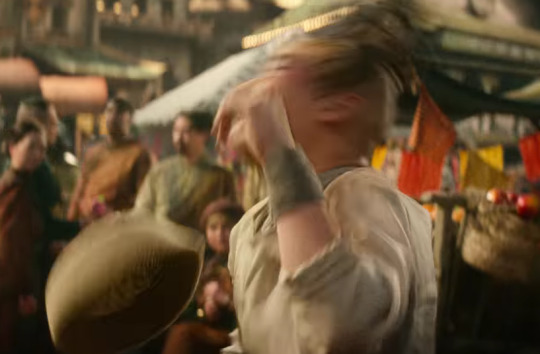
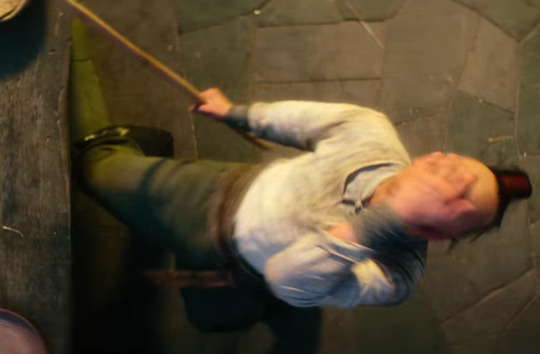
I think the reason I liked it so much was that it was funny, honestly, not in the same way or to the same degree the cartoon was but I laughed out loud a couple times. For instance Zuko gets hit in the face three times in the span of ten seconds, once with a plate, once with a wicker basket, and once with his own little stick thing. Aang also put a basket over his head and some random ass lady started whacking him with a fan. Kudos to whoever choreographed that it was the best.
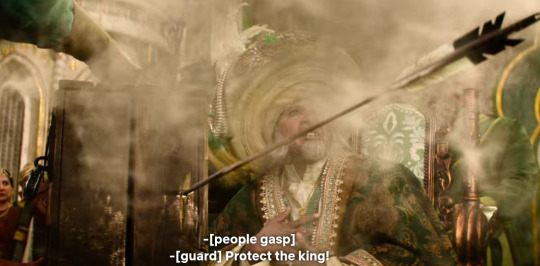
Also I liked how Sokka and Katara saved the day together. Cute sibling bonding excersize. And it ended on a cliffhanger with the characters separated! My favorite kind of cliffhanger! It definitely left me wanting more.
Anyway, to recap, things I didn't like:
No Zuko and Zhao agni kai
Mai and Ty Lee were just sort of there
Katara's characterization is still so-so
Jetara plot line was boring and chemistry was not the best
It was kind of a lot for one episode, even if they managed to do it well
Things I did like:
Opening scene
Azula characterization
Teo
The Mechanist plotline
Teo and Katara parallel
Katara DID actually seem a little bit more firey in this episode
SCARFGATE
Zuko and Aang fight scene
Surprisingly good handling of all those loose ends
Cliffhanger
Overall, I would give it a 9/10. That's the highest score I've given an episode so far and I'm standing by it. I know others might have a very different opinion on it since it was condensed so much and differed a lot from the cartoon, but I agreed with many of the changes they made. One thing I would urge everyone to remember is that these are different characters from the cartoon. They're going to act slightly different and have slightly different journys and that's okay. I think it is worth comparing to the original, as it is an adaptation, but we need to remember that an adaptation is not an exact replica, nor should it be. That in no way means that we should make allowances for anything we found negative or mediocre, but it is going to be different and change in it of itself isn't a bad thing. Anyway thank you guys so much for sticking with me! I'll probably have the next episode's debrief up by tomorrow.
#natla debrief#emmie babbles#scarfgate#zutara#aang#sokka#katara#zuko#jet#jetara#natla episode 3#natla analysis#natla meta
55 notes
·
View notes
Text
i think the problem with most widespread writing advice is that it's meant for writers just starting out and not meant to be applied to All Levels Of Writing.
like "show don't tell" is meant to encourage a new writer to think of different ways to describe something beside The Obvious and push them to observe how different uses of words can affect the reader. it does NOT mean "never outright state what is going on ever."
the common advice to cut out things that aren't essential to the story is to give new writers a better handle on how to PLOT a story-writers generally have to start out telling stories with Very Obvious conflicts and plot beats before they gain enough control of the form to tell more subtle ones. it doesn't mean characters talking to each other casually is evil.
"start in the middle" is a piece of advice meant for beginning writers who often have much bigger story ideas than they can feasibly put to paper. they don't have the writing experience to know which parts of their ideas they can execute well (or at all). starting in the middle then means writing the part with the most conflict and interesting things happening first (which is easier for a beginner) and, most importantly, gets them out of the planning stage and actually writing. it does not mean exposition is evil and your story should always start with something Big and Dramatic.
the thing with writing advice is that it's not one-size-fits-all, and writers should discard any advice that they've outgrown or doesn't serve them any more. the craft of storytelling is about learning how good stories are built and made from the smallest to the largest scale, not following a bunch of arbitrary rules to the letter.
#writing advice#writing#starredwrites#star speaks#writing help#i was gonna talk about said is dead but that's just bad advice in general#i have anecdotal evidence for all of these but i'm pretty sure anyone who's been around baby beginner writers can affirm these#hell i can give personal examples if anyone wants
2K notes
·
View notes
Text
7 Things I Wish I'd Known as a Beginning Writer
I wish I'd known so many things as a beginning fiction writer. . . .
Recently, I was teaching and mentoring at the Storymakers Conference, and I got into a conversation with a fellow editor and writer about such things, and I've sort of been thinking about them off and on ever since. Thus, this post. But I'll keep this intro brief. . . .
Here are seven things I wish I'd known when attempting to write my first novel.

1. Nearly Every Scene Needs a Goal
I consider goals to be the first element of plot. Without a goal, you can't have a true antagonist--because the antagonist is what opposes the goal. And without that, you can't have conflict. Or consequences. Or a true story.
But not only does your protagonist need an overarching goal for the act or whole narrative arc, but there should almost always be a little goal for nearly any scene. Often what happens, is the big goal will be broken up into scene-level goals. So, while Katniss's overarching goal is to win The Hunger Games, her scene-level goals may be to impress the Gamemakers, nail her interview with Caesar, or find Peeta in the arena. And of course, if there are multiple plotlines, as is often the case, there may be goals related to other plotlines beyond the main external one.
Admittedly (and unfortunately) though, even if someone had told me that 10+ years ago, I would have been very skeptical, and my mind would have immediately gone searching for scenes where there isn't a goal present.
I now realize, I had a very narrow view of what a goal was. See, when I heard the word "goal," I only thought of obtaining something. Thankfully, that is only one type of goal. Avoiding something can be a goal. And wanting to maintain things as they currently are can also be a goal--it just needs an antagonistic force (just as they all do).
So, at the most basic level, there are three types of goals: obtain, avoid, or maintain.
The goal can change. It can even be achieved or abandoned. In which case, a new goal needs to come into play.
Some scenes don't start with a goal, but usually one comes in as the scene progresses, and goals may not be a big component of sequel scenes.
There are, of course, some rare situations where there isn't really a goal at all, but when that happens, there is often still directionality--a sense of where the story is going.
Goals help tighten up the story by giving the audience a sense of direction, and if you don't have a goal in play, then you need to come up with another way to do that, such as playing with dramatic irony (the audience senses that the direction the story is going, is that the characters will eventually figure out what they already know).
Until a goal is in play, the audience can't really measure if what is happening is progress or a setback, and they can't get a strong sense of why what is happening matters (because the characters aren't trying to get anywhere specific).
Goals are super important in the overarching plot. They are equally important, if not even more important, within scenes.

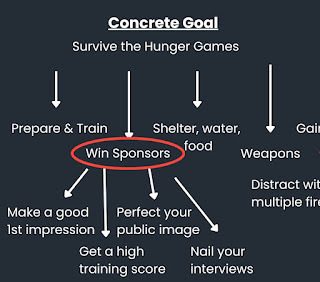
2. Scenes and Acts Should Follow Basic Structure
Most of us are probably familiar with basic story structure: rising action, climax, falling action.
But many of us weren't taught that this is also the basic structure of acts and scenes.
The difference, is that, in acts and scenes, it's smaller and less impactful.
This shape is a fractal that repeats itself within the narrative arc. It's like a Russian nesting doll, with the smaller structures of it fitting into the larger ones.
This means most of your scenes should actually have a climactic turning point.
This also means that the story should have changed at least a little because of the scene. How the story was at the beginning of the scene, should be at least a little different from what it is at the end of the scene. If it's not, the scene is probably just exposition and/or filler.
There are, of course, some exceptions to this. For example, sometimes the point of the scene is to show how things haven't or aren't changing. But if most of your scenes don't follow this structure and aren't changing the story at least a little, they probably aren't progressing the story, and are just filler (unfortunately!).
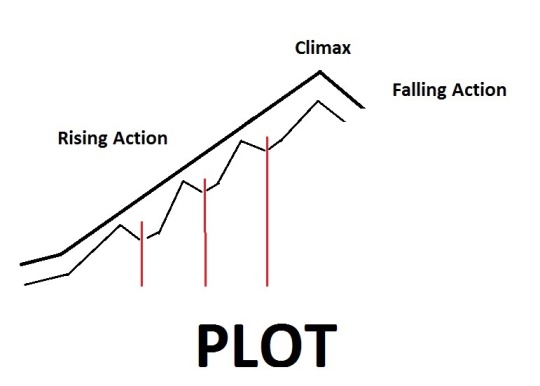

3. Know Your 4 Basic Character Arcs and Which You are Writing
Some writing advice doesn't work well for all stories, and that can be especially true when you get into character arcs. There are four basic types of character arcs: positive change, negative change, positive steadfast, negative steadfast. Any other character arc should fit into one of these four.
In brief, a change-arc protagonist will do, more or less, a 180-degree flip about a belief system or worldview. They go through a big change or transformation. If this is positive, the protagonist flips from an inaccurate worldview to an accurate one. If negative, the protagonist flips from an accurate worldview to an inaccurate one.
In a steadfast arc (also called a flat arc), the protagonist will stay, more or less, the same at the end of the story as they were at the beginning of the story. They will uphold the same worldview. A steadfast story is about the protagonist holding true to who he was in the beginning, despite other forces testing or tempting him to bend or quit. If this is positive, the protagonist is holding steadfast to an accurate worldview. If negative, the protagonist is holding stubbornly to an inaccurate worldview.
Of the four types, the most popular one is the positive change protagonist, which means there is a lot of great advice for that type. Unfortunately, that advice doesn't always translate well into the other three types.
This is where I ran into one of my biggest stumbling blocks when I was a "beginner" storyteller. I wanted to write a flat-arc/steadfast protagonist story, but I didn't know about those terms and I couldn't articulate what I was trying to do nor find resources to help me do it. I kept trying to apply change arc advice to a steadfast protagonist. It didn't work well and caused somany problems! Eventually, and unfortunately, I turned my steadfast protagonist into a change-arc protagonist in the process. Yikes.
While positive change arc protagonists are the most popular, they aren't the only type, and you don't have to write that type. So know what type you are writing and be discerning about what advice does and does not apply to it.

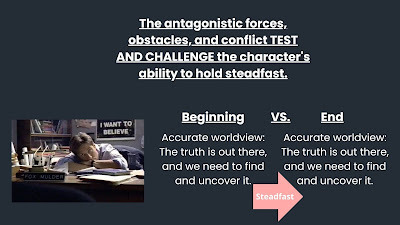
4. Character Agency Actually Makes the Character More Sympathetic
Let me admit something. While I think I'm somewhat of a natural at dissecting stories, I've learned I'm not a natural storyteller. After college, I could write pretty lines with a great style, but I really struggled with actual story elements. I don't think I'm natural at story. It seems I have had to learn everything the hard way in that regard. But I can't feel too bad about it, because trying to figure out why what I was doing didn't work has spurred much of this blog.
Anyway, when I started taking writing seriously, my protagonist did not exercise much agency. Bad things were just happening to him and he was just reacting, and he was really rather passive in plot (in part because I didn't understand the importance of goals nor that I could pick from three not just one type (see #1)). He wasn't making many choices or demonstrating his agency.
I wanted him to be really sympathetic because of his difficulties, and on a subconscious level, I thought that the lack of agency and control over his situation was doing that.
In reality, as counterintuitive as it sounds, the opposite is actually true.
Agency makes characters more sympathetic.
Here is an example I like to give when teaching others about this concept.
Imagine a story where a mother's daughter goes to the store and gets shot and killed by criminals.
It's sad, of course, but it seems random. Bad things happen to everyone.
Now, imagine a story where the mother didn't want to go to the store, and so chose to send her daughter instead. Then the daughter got shot and killed by criminals.
Most of us would say the second one is sadder.
Why?
Because the mom now holds some level of responsibility and accountability for what happened. If the mom hadn't sent her daughter, she wouldn't be dead.
Now, don't get me wrong, obviously the criminals are the real ones to blame, and the daughter also exercised agency by deciding to help out her mom (which makes the daughter a more sympathetic character too--she was just trying to help).
But in the second scenario, there is a stronger sense of cause and effect, where the mother's choices led to negative consequences.
And now, she may be haunted by the choice she made. What if she had chosen differently? Maybe she should have gone to the store herself. Or maybe she should have just used a delivery service. Or maybe . . . (I think you get the point).
This makes her more sympathetic. Not less.
And one way to make a character particularly sympathetic is to have her make choices with the best intentions and then have them lead to painful, costly consequences.
I could do a whole article on character agency in the future . . . or maybe I'll just save it for my online course. 😉
For now, this should give you a little something to think about regarding it: exercising agency makes characters more sympathetic, not less.
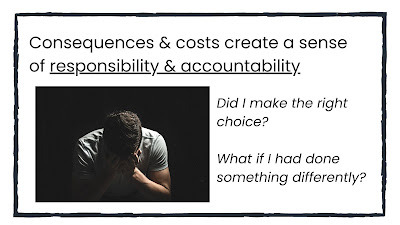
5. The Antagonistic Force isn't Only the Main "Big Baddie"--Your Story Should be Loaded with Them
In the writing community, we often talk about THE Antagonistic Force ™ in a story. We get very focused on THE MAIN Antagonistic Force ™--which makes total sense, I mean, duh! It's the biggest opposition.
But I sometimes feel like this leads to limiting perspectives that hurt our stories. (It certainly did for me and mine when I was learning.)
In reality, an antagonistic force isn't just some scary entity. An antagonistic force is anything that opposes the goal (see #1). It is the obstacles and resistance in the way of the goal. It's not something that is just heckling or annoyingthe protagonist. It's blocking, resisting, or pushing the character away from the goal.
And if (nearly) every scene should have a goal and should follow basic story structure, naturally that means there should be lots and lots and lots of antagonistic forces in a story--even if that particular antagonist only lasts for one single scene. Even if that antagonist isn't THE Antagonistic Force ™.
We need antagonists to have conflict (or even just tension--there is a difference) and meaningful consequences in our stories. That means an ally may step into the role of an antagonist if only for a moment, even if the ally isn't what we think of as a "baddie." (It may just be she has a different idea of what to do next, and that opposes the protagonist's current goal.)
And the antagonistic force isn't always "bad." It's simply something that opposes the goal. That's it.
So even if you have a main antagonistic force, make sure your story has lots of lesser antagonistic forces along the way--things that oppose the current goal. They may be temporary antagonists, but they are antagonists nonetheless.

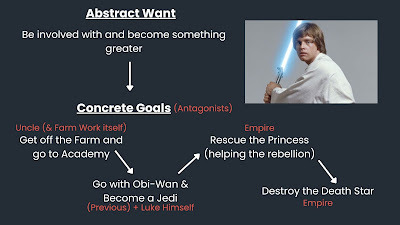
6. Create Side Characters with Lead Characters in Mind
Once upon a time I brainstormed and ironed out a whole character who I, of course, thought was great. But when he finally got on the page with one of my main characters, the scene was terrible. The two did not go together well at all. It was some of the flattest most boring character interactions I'd ever written.
You see, while I liked both characters and worked a lot on each, they did not work well together--or perhaps, rather the problem was, they worked "too well" together, which was why it was so flat and boring. My main character in the scene was pretty nonchalant. The new side character I inserted was relaxed and lazy. Ack! What was I thinking? Because I had created each of them individually and because there were so many other features to them, I didn't realize how terrible they would be on the page alone together.
Rather than create each character as an "island," it's better to create supporting characters with the leads in mind. What kinds of qualities and attitudes are going to challenge and test your lead characters? What does your lead need to learn from this person? Or, what can the lead teach this person? What kind of person will uncover a new side to your lead? These are useful questions to ask when creating side characters.
In my story, in addition to being nonchalant, the main character valued honesty so much that he was often blunt (read: borderline rude). So I made the supporting character someone uptight who valued politeness. It took much less work on my part and the scene was much better for it.

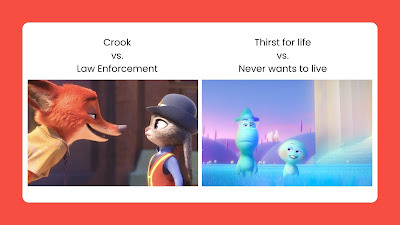
7. Pretty Lines and a Nice Style Will Only Get You So Far (Which is Not Very Far at All)
As I already mentioned, when I got out of college, I could write in pretty lines and I had a nice style. In fact, style was one of the things I'd often get complimented on. But guess what? That doesn't matter if your story stinks.
There was an adage I would hear floating in writing communities around this time. Its basic idea was that if your lines are good enough, it doesn't matter what the story is, the reader will keep reading.
Today, I think this is a dangerous thing to be telling people, and when my story wasn't working out, I'd sometimes get stuck on that idea, thinking, Well, I have a good style, and if I just write this clever enough, witty enough, interesting enough, beautiful enough--X enough--the reader will keep reading!
Let's just say I wasted a lot of time doing that.
It didn't matter how beautiful or funny the lines were if the plot, characters, and structure were broken.
And ironically, I've learned that, actually, if you can figure out the story first, the lines will often come more easily. (This is because you aren't trying to make a pigsty look like the Taj Mahal. 😉)

Well, there you have it. And yet . . .
. . . with all that said, I also recognize I was not ready to learn and understand all these things when I did start writing seriously. And some things you can only truly learn and understand by diving into the craft. I mean, if you wait to know everything to start writing, you will be waiting forever!
But what about you? Is there anything you wish you'd known as a beginning writer?
#writing tips#writing tips and tricks#writeblr#writing advice#writing help#writing tip#writing reference#writing#writer#fanfic
399 notes
·
View notes
Text
Importing my Twitter musings for maximum emotional damage. I’m . . . sorry? 😬
@jaynovz actually inspired this because we were talking about memories and trauma and how they relate to Silver in our chat for her episode of Reading Between the Lines Podcast. She mentions memories in a vault, which got me thinking about how James is doing the exact same thing. Oh! Which made me realize something else! Holy shit . . . that’s WHY he prods Silver for his past! That’s why he tells him how important all parts of him are, his present, his past, his trauma, it’s all important to embrace. Why?? It’s a lesson he learned from Miranda. One of the last.

Okay, I’ll stop screaming and just continue with my Twitter thread . . .
Once again thinking about how those flashbacks dance around James’ and Thomas’ love story up until episode 2X05. You can certainly hold to the belief that the only reason was to drop that twist mid-season, but let’s think about how we engage with memories.
Some memories are so overwhelming that we avoid them. We don’t have time for them. We tuck them away in a drawer in the darkest corner of our mind where we are convinced we will be safe from them. That’s all well and good if those memories aren’t shared with anyone else.
The flashbacks, we realize very early on, aren’t simply exposition. They exist in Flint’s present reality; memories triggered by Flint’s quest seemingly nearing its end . . . Thomas’s dream finally within his grasp. Equally important, they are triggered by Silver.
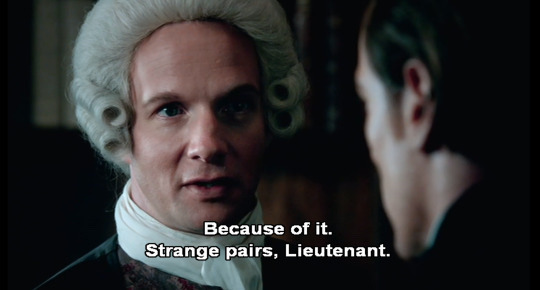
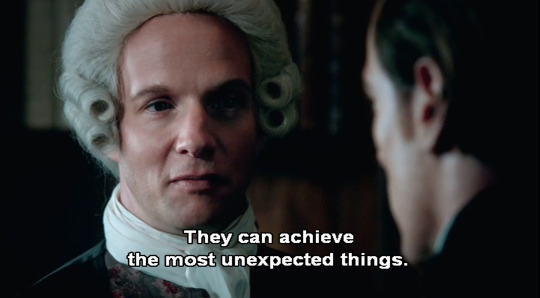
It’s very important to remember that we don’t get a single flashback until they are triggered by Silver working with Flint. He begins to remember Thomas because Silver reminds him, not of Thomas, but of himself. He’s now understanding how much of Thomas he’s embodied himself.
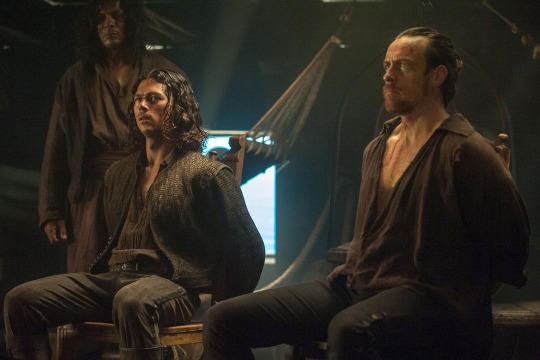
In season one, Miranda chastises James for never addressing his loss. For tucking Meditations on a shelf and hiding it away from himself. He’s angry not just because she shared that book with Richard Guthrie, but because she’s reminded him of its very existence.
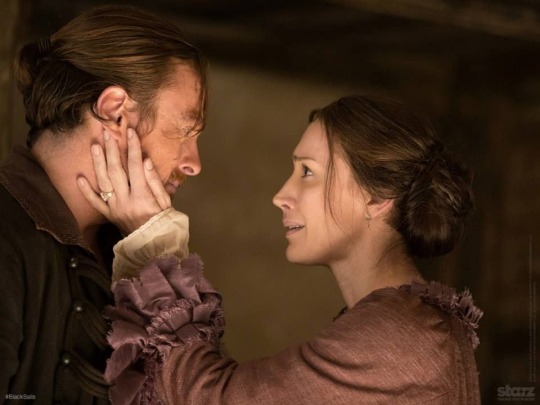
The flashbacks are all from Flint’s perspective, as he’s focused on his goal. He’s remembering their vision for Nassau, pushing on that bruise to continue spurring him onward, no matter the cost, no matter the casualties. He never brings up Thomas by name. Not once.
It’s Miranda who brings him up by name. Miranda who is desperately trying to get him to remember the love. Remember the true reason he’s doing what he’s doing. She knows he can’t. It’s too much. It’s too painful. And so every single flashback is from Flint’s perspective . . .
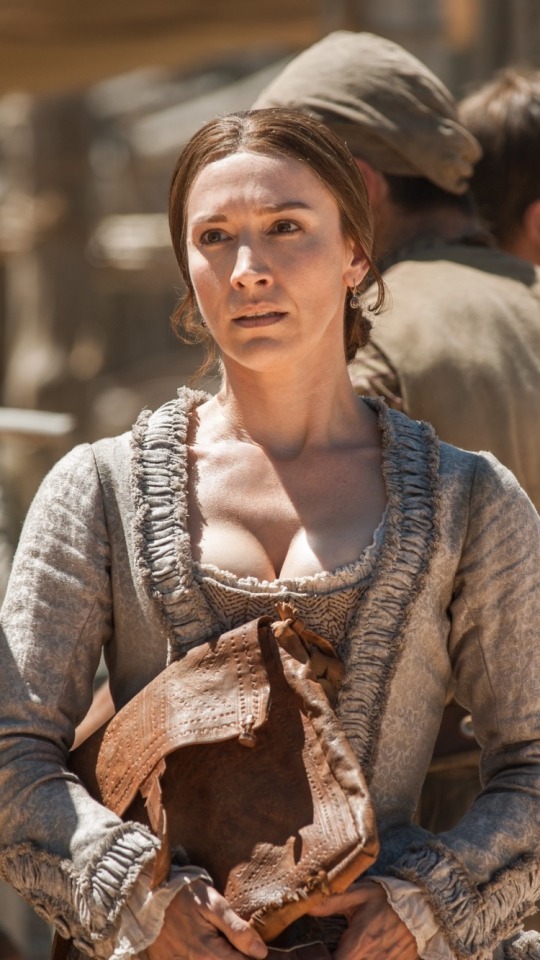
Until episode 2X05. When we see that dinner scene with Alfred Hamilton again, when we see that first kiss, it’s Miranda who is thinking of it. That’s HER memory of it because James still can’t look at it. It’s like staring into the sun.
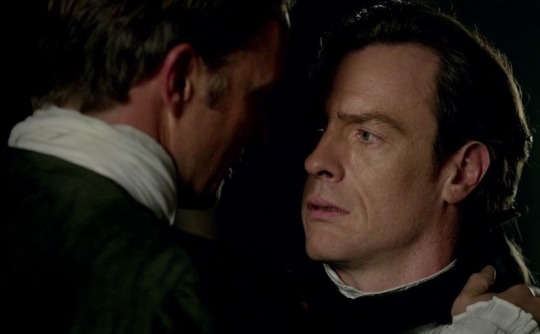
The writers weren’t skirting around the reveal, it was simply being told to us by a character too traumatized to give us the whole story. We needed Miranda’s perspective. She hands him the book and it’s the inscription that finally breaks him. Finally gets him to open that drawer.

But the memories tucked inside that drawer are not Miranda’s. He doesn’t go back to the dinner scene, to that kiss. What we see is what Miranda didn’t see. We see James’s memories of the book.
He couldn’t look at that book because it wasn’t the memory of a tender first kiss at dinner, it was the unbearable intimacy of sharing that book, the private intimacies and love that’s had time to breathe for a bit. Miranda calls it shame because she doesn’t have those memories.
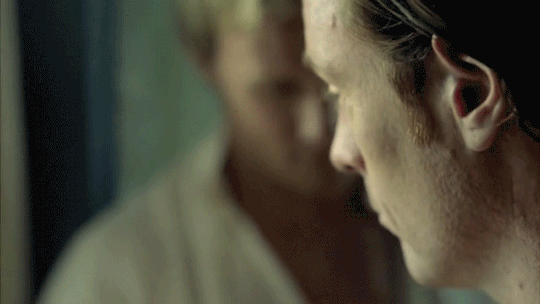
So while it’s true that Black Sails was planned to build up to this reveal from its infancy, it’s equally true that James’s story is told in one of the most organic and ultimately honest narrative arcs I’ve ever seen.
So much of the beauty of this show is derived from the absolute mastery of the writers creating at the very peak of their craft and we should all remember that, during a time when those same creators, who have given us so much, are fighting to be compensated fairly.
Black Sails is the gift that keeps on giving, and onion one might never reach the center of. Considering all of this, I’m beyond excited to see what we are served up with the Percy Jackson series. If it’s anywhere close to the quality of Black Sails, we’re in for a real treat.
#black sails#captain flint#toby stephens#james flint#john silver#james mcgraw#luke arnold#long john silver#black sails meta#silverflint#flinthamilton#rupert penry jones#thomas hamilton#louise barnes#miranda hamilton#miranda barlow#emotional flailing#reading between the lines podcast
259 notes
·
View notes